Turning Point. The Twelve Works of Sant’Egidio.
The Community of Sant’Egidio, a lay movement founded in 1968 in Rome, is among the most dynamic in the Catholic Church. It has 70,000 members in more than 70 countries. Historian and publicist Koenraad De Wolf reveals in twelve chapters the various aspects of the movement. An ordinary man or woman tells the story of how his or her life changed dramatically after getting to know the movement. Thus the title: Turning Point. Additionally prominent members of the movement offer their vision for the future. The power, the spirit, and the prophecy of the movement can be summarized in one word: authenticity.
Inspired by the Gospel, Sant’Egidio engages itself on behalf of the outcasts of this earth: the many forgotten groups that languish on the margins of society, such as the homeless, Roma Gypsies, migrants, people infected with HIV, the elderly, the disabled, and disadvantaged children. Community members express solidarity with the poor with concrete deeds and above all with a big, warm heart. In addition, the movement plays a pioneering role around the globe in interreligious dialogue, peace mediation, and the fight against the death penalty. The community sees itself, not as the way, but as one of many ways which show that, despite the crisis in the Church, the Gospel message is still highly relevant and can inspire a lifelong commitment in people. The beautiful photographs in the book were shot by professional photographer Herman Ricour.
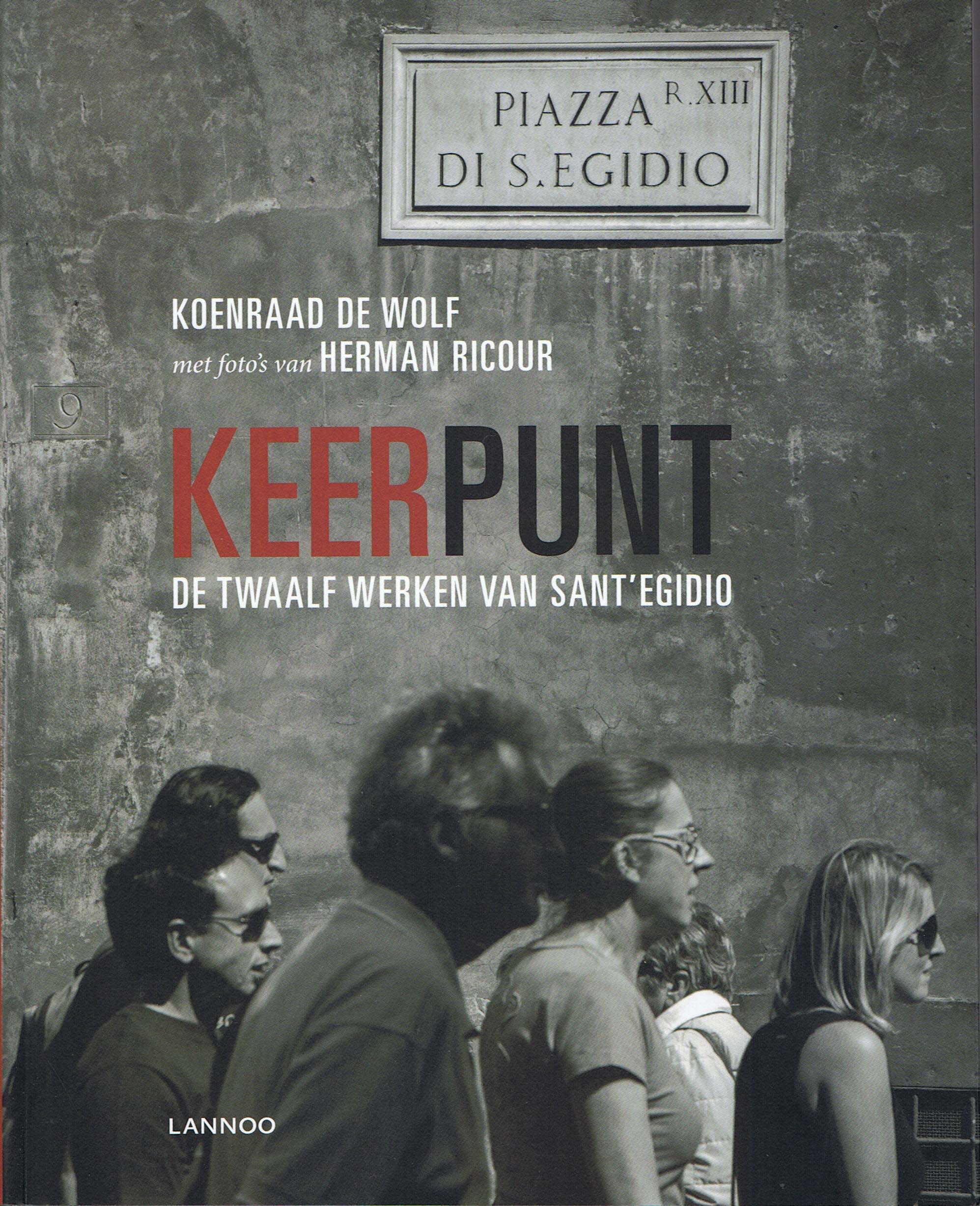
|
Keerpunt. De twaalf werken van Sant’Egidio, Tielt, Lannoo, 256 p.
€ 24,99 – Koenraad De Wolf, with photo’s from Herman Ricour – Publisher Lannoo, Kasteelstraat 97, 8700 Tielt, tel. 051/42.42.11, info@lannooshop.be
|
The World of Sant’Egidio. Through the Eyes of Herman Ricour
Professional photographer Herman Ricour followed Sant'Egidio around for a year. Besides visits to the communities in Antwerp and Brussels, he made a small trip around the world. He explored the roots of the movement in Rome and attended the Prayer for Peace in Munich. He also visited the communities in Malawi, Mozambique, and El Salvador.
In the remote village of Dzoole, somewhere in ‘the middle of nowhere’ in Malawi, Ricour saw a gaunt woman coming by foot to the DREAM Centre for her HIV treatment. In a place where until five years ago a doctor had never been, now a doctor follows her medical files on the computer. In Rome he photographed beggars, the homeless, and Roma Gypsies who at the party that Sant’Egidio had arranged for them gaily danced and afterwards stood in line in the restaurant for homeless. In the poverty-stricken fishing village of Herradura in El Salvador he captured with his lens the joy of the hundreds of children who through the Long Distance Adoption program receive school books and the opportunity to continue studying. And in the capital, San Salvador, he was present at the distribution of prepared meals for hundreds of desperately hungry homeless, many of whom the next day attended a prayer for and with the poor. In thirty-five gripping and often touching photos Herman Ricour penetrates the soul of Sant’Egidio and their dream of a world in which people live together harmoniously on an equal footing and as friends of each other...
Texts: Koenraad De Wolf
Photo’s: Herman Ricour
Translation: John Steffen
|

| |
(1.) Helping hand works wonders
With a helping hand, youngsters of the Community of Sant’Egidio befriend the lonely elderly. “This approach works wonders,” testifies 95-year-old Clementine Sassen. She threw her ‘euthanasia testament’ in the trash at the Simeon and Hanne home for the elderly in Antwerp and found there a new meaning in her life.
|
|
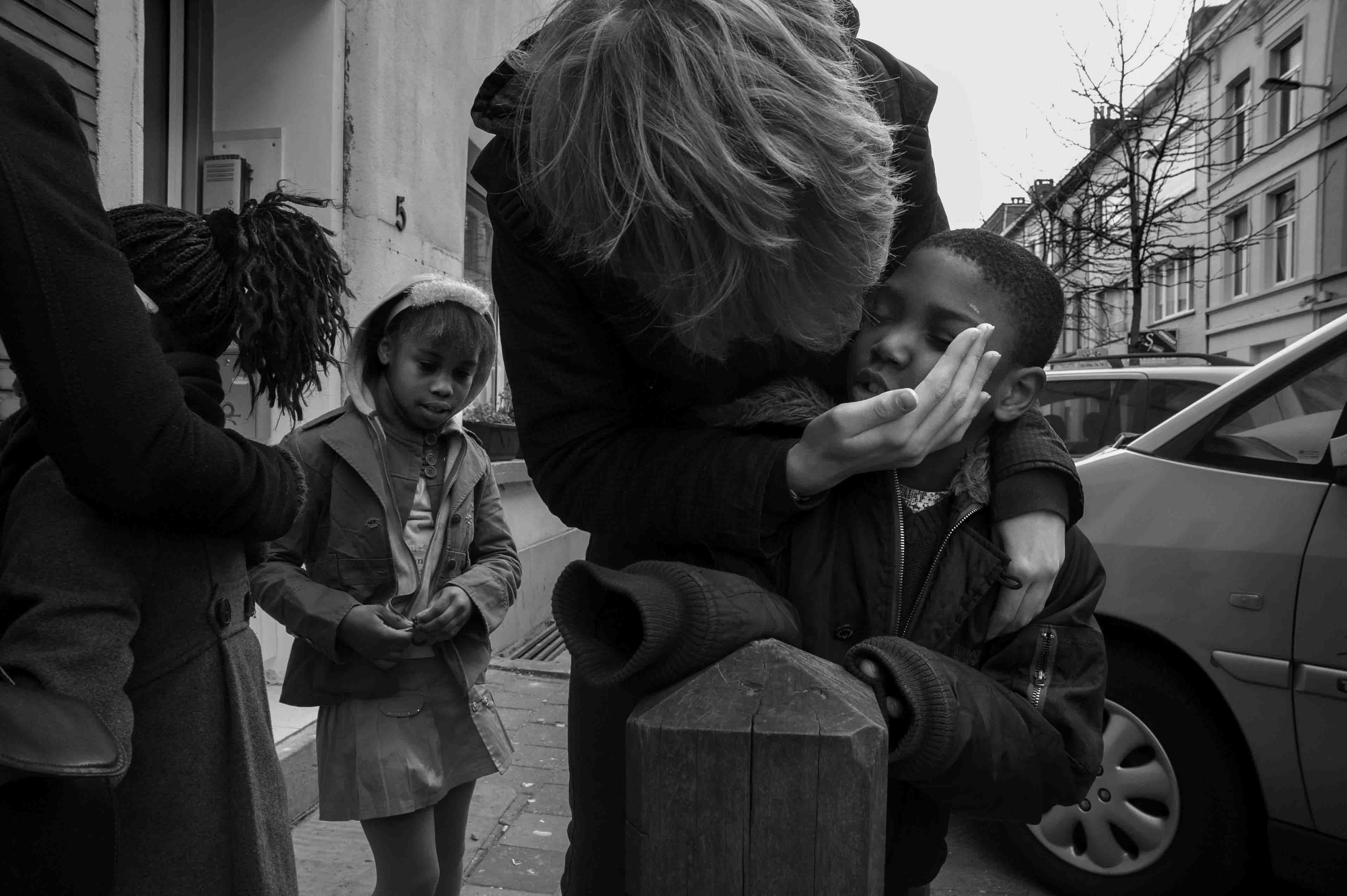
| |
(2.) Children are really wanted
In the 73 countries where Sant’Egidio is active its Schools of Peace support disadvantaged children in their educational activities – here in the Stuivenberg district of Antwerp. By being picked up and brought back home, the children feel that they are really wanted.
|
|
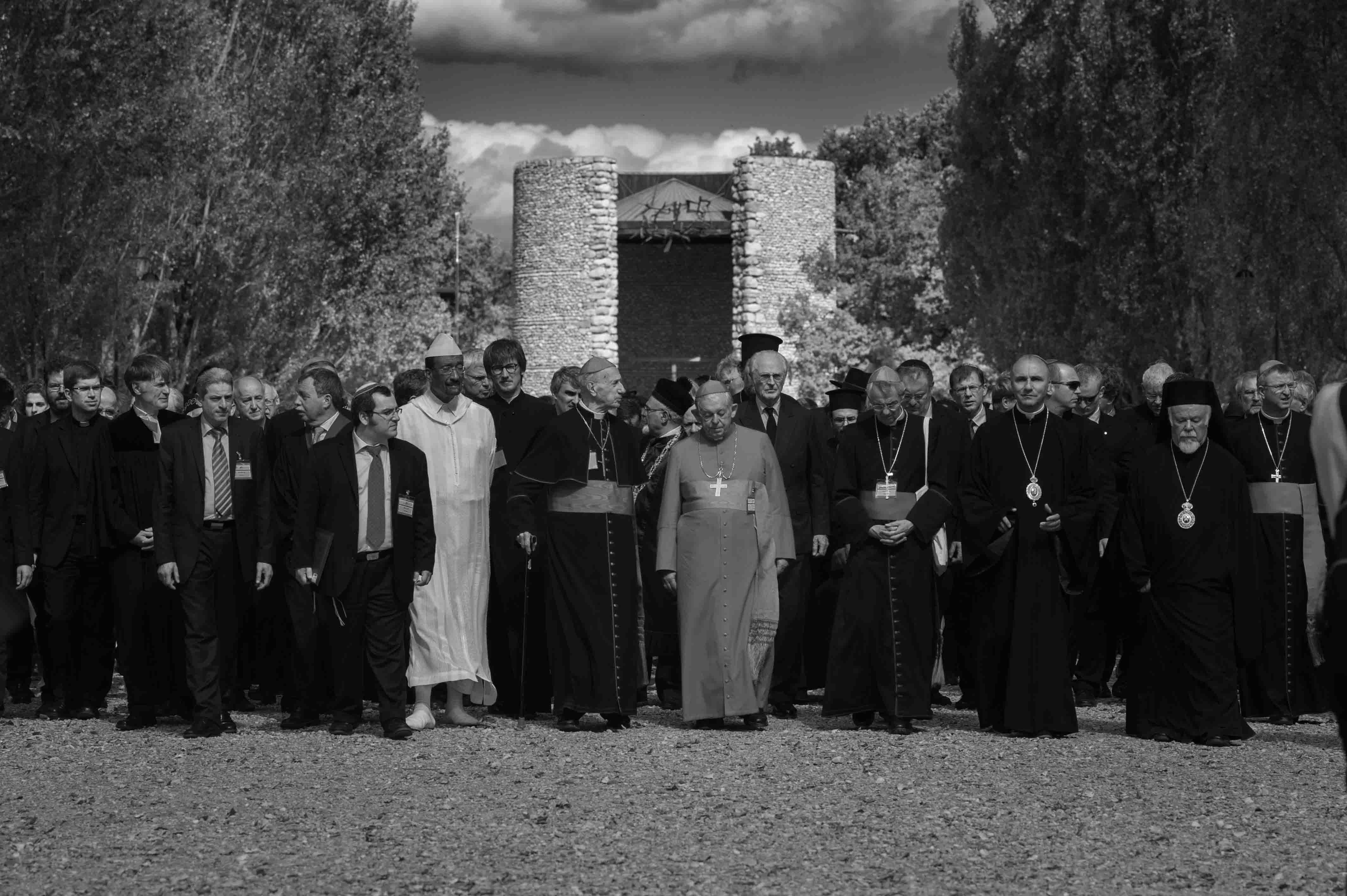
| |
(3.) Keeping alive the memory of Shoah
In the work of Sant’Egidio, history holds an important place. During the International Meeting of Prayer for Peace in Munich in 2011, representatives of religious communities from around the world commemorated the six million victims of the Shoah with a silent march in the concentration camp of Dachau.
|
|
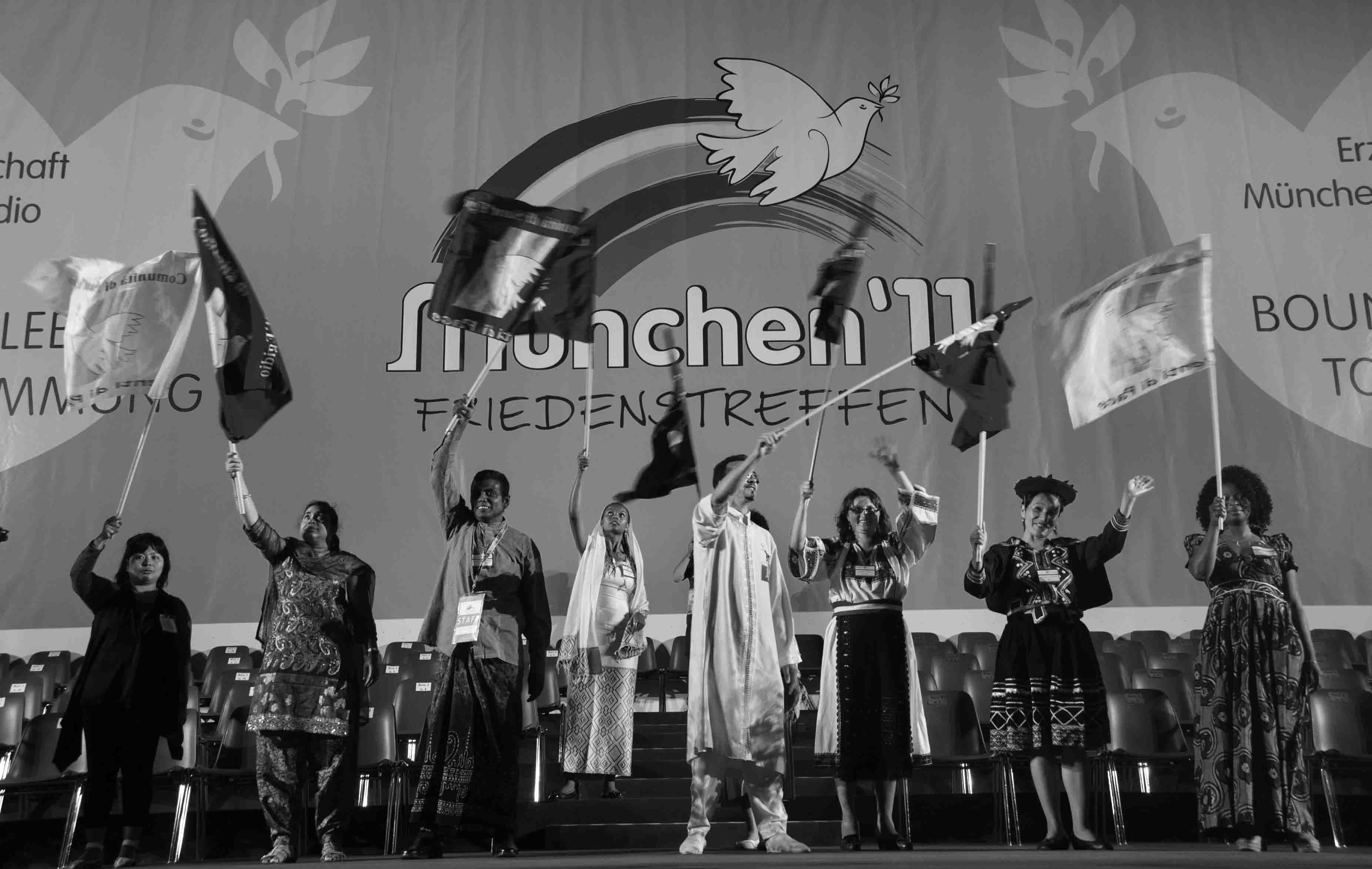
| |
(4.) Need for authentic religious dialogue
Final ceremony of the annual Meeting of Prayer for Peace of Sant’Egidio in Munich, September 13, 2011. The importance of an authentic interreligious dialogue can hardly be overestimated. |
|
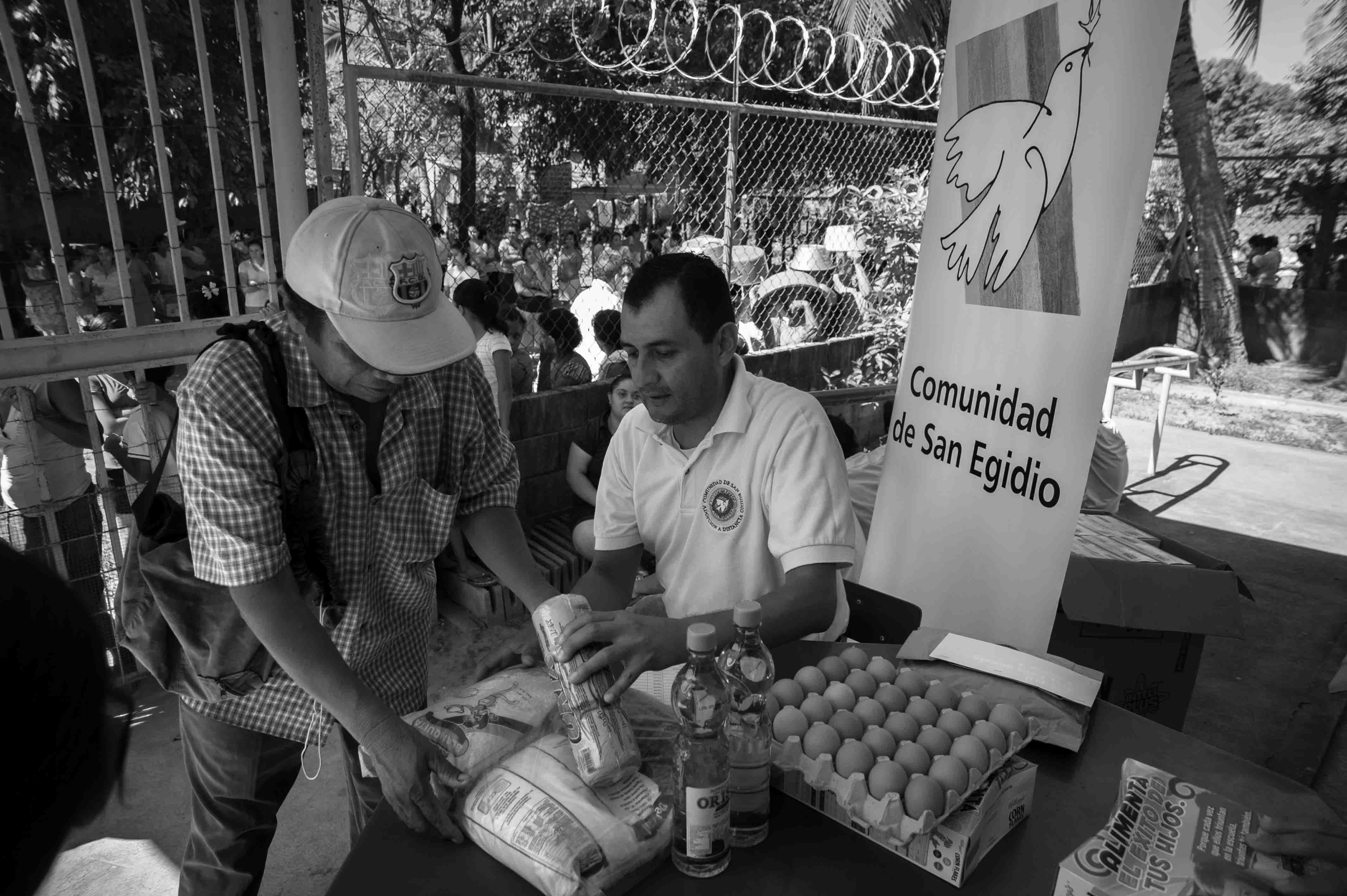
| |
(5.) Better future for children and families
Food dispensation to 215 families in the poverty-stricken fishing village of Herradura in El Salvador. By alleviating the most urgent needs, the Long-Distance Adoption project of Sant’Egidio provides the basis for a better future for both children and their families. |
|
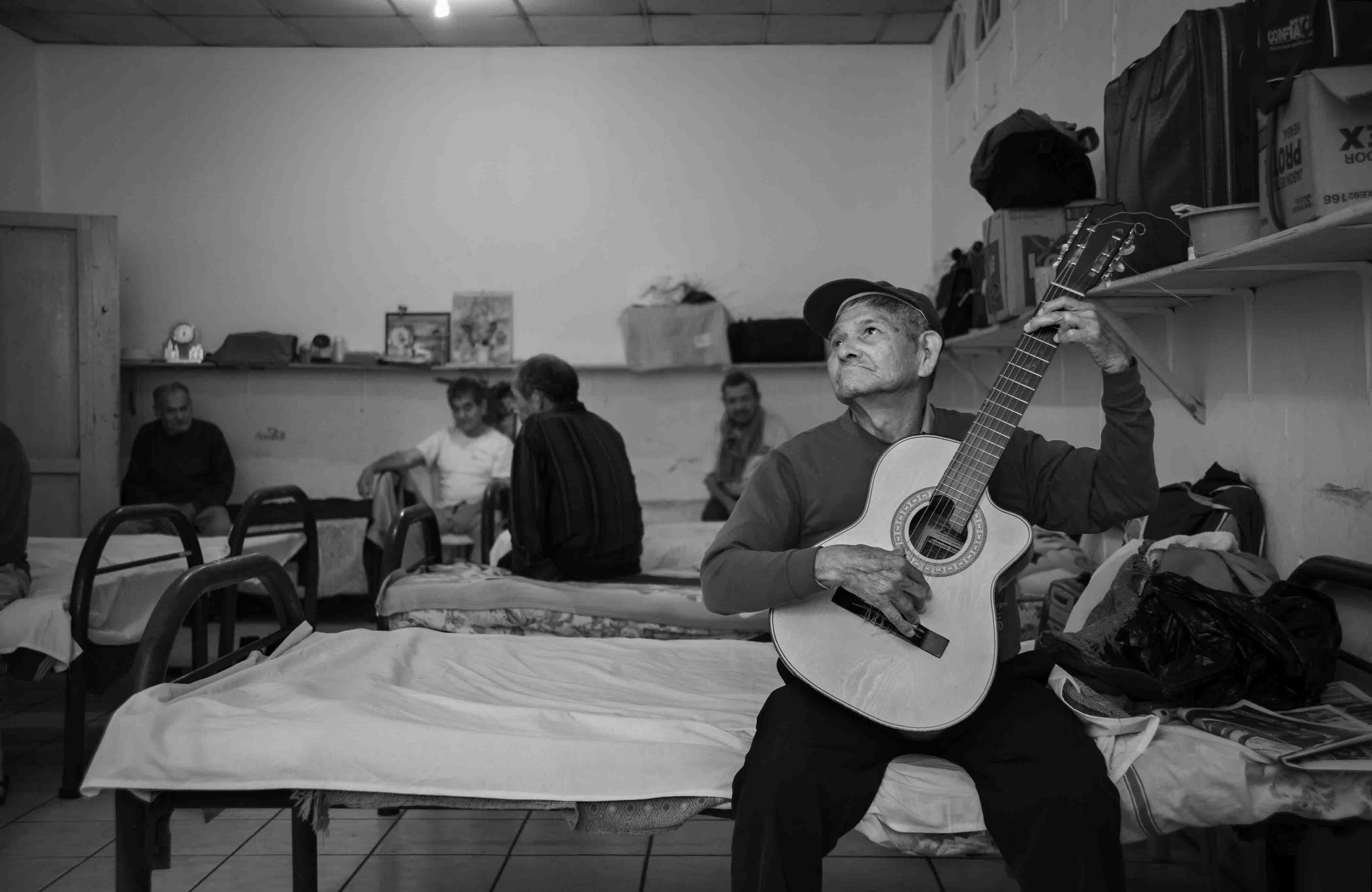
| |
(6.) Support for ‘condemned to death’elderly
Volunteers of Sant’Egidio are active in a refuge home for elderly people in Santa Tekla, El Salvador. It is often claimed that the elderly cost society too much money. They indeed seem to be condemned ‘to death’. |
|

| |
(7.) Reflect on the essential
At the weekly Eucharistic celebration of the Community of Sant’Egidio in the Church of Santa Maria of Trastevere in Rome, members reflect on the essence of their work: commitment to the poor inspired by the Gospel and prayer. |
|
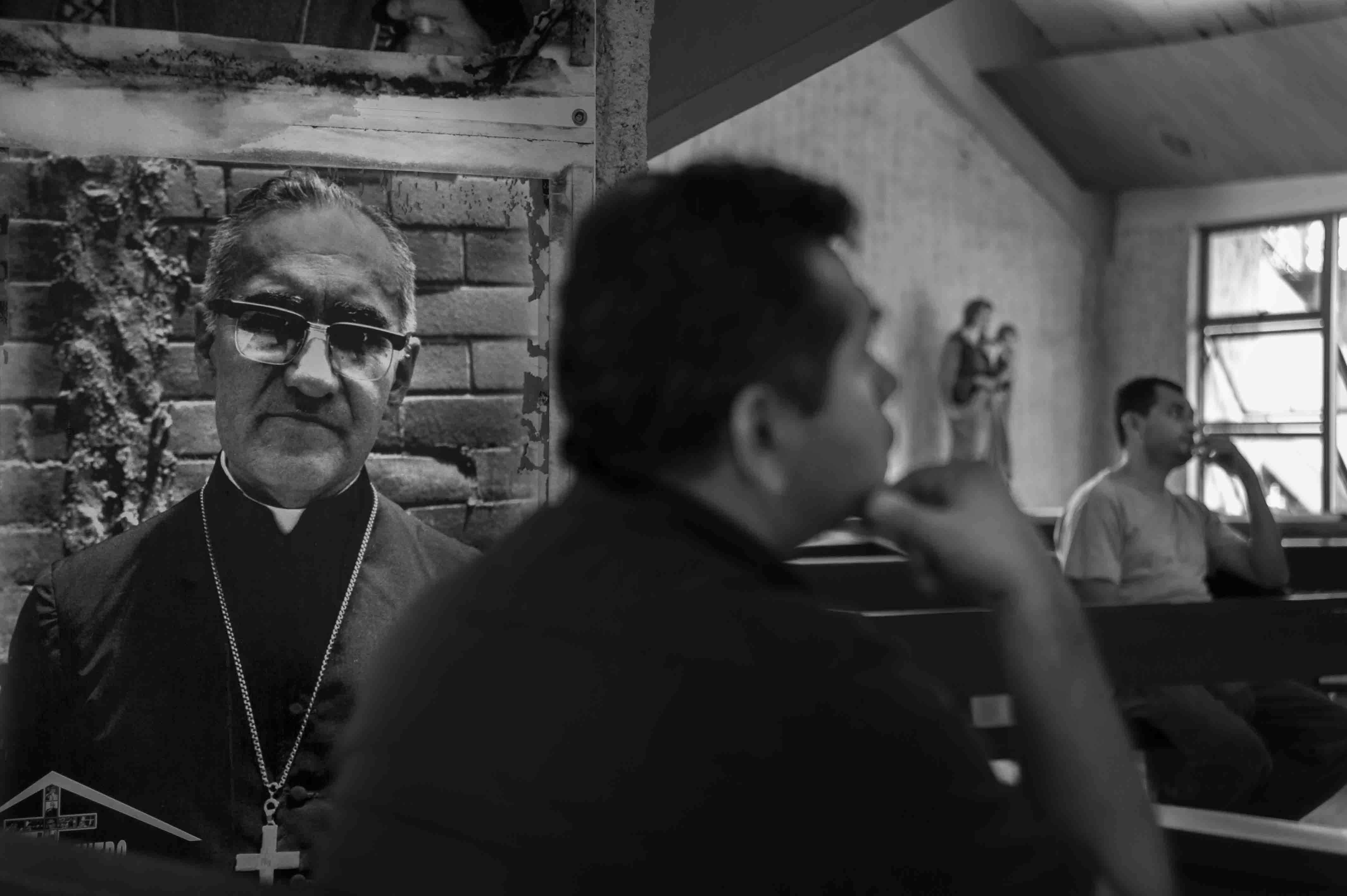
| |
(8.) Remembering martyr Romero
At the left, a photo of Archbishop Oscar Romero in the church in San Salvador where he was slain on 24 March 1980. Jaime Aquilar (middle) and Antonio Amayo, the leaders of Sant’Egidio in El Salvador, are sunk in prayer. |
|
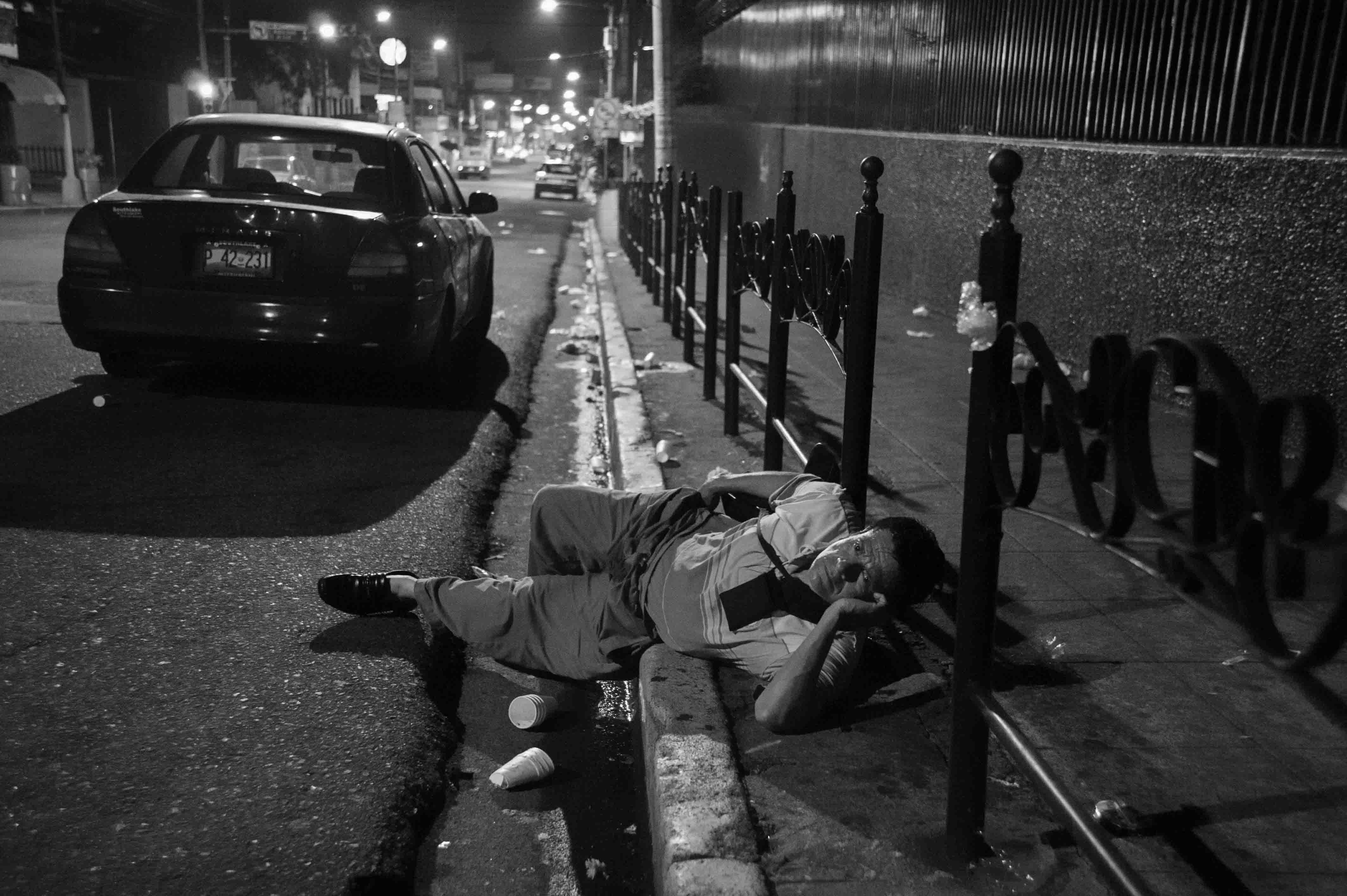
| |
(9.) Unconditional friendship
A homeless man along an access road from the capital, San Salvador, is waiting for Sant’Egidio’s weekly food distribution. Nothing is more important than the unconditional friendship for those who must survive on the margins of society. |
|
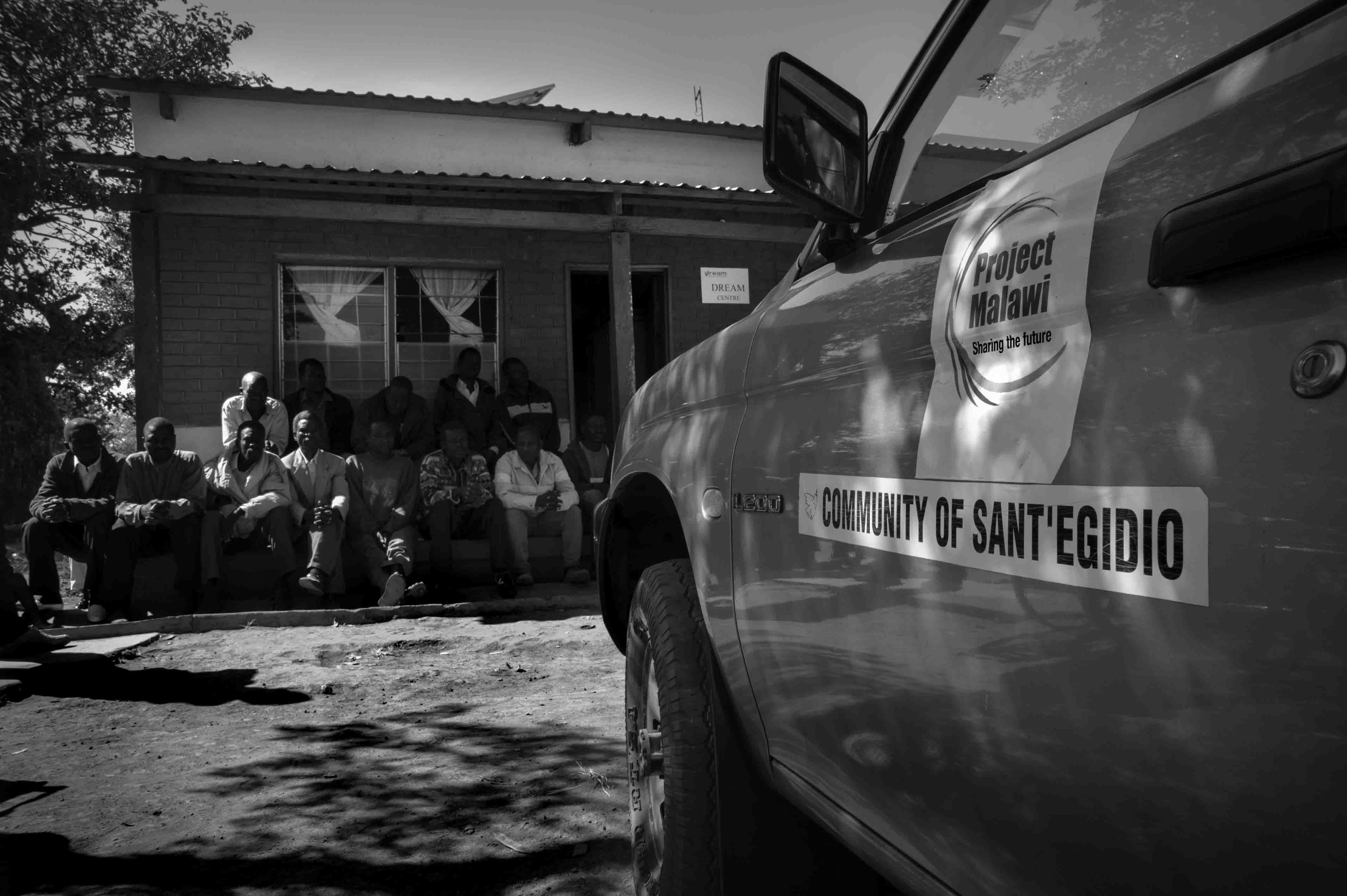
| |
(10.) Priority for the poorest in remote areas
At the DREAM Centre of Sant’Egidio in the village of Dzoole, ‘in the middle of nowhere’ in Malawi, patients infected with HIV patiently wait their turn. The movement gives priority to the poor in remote areas overlooked by all. |
|
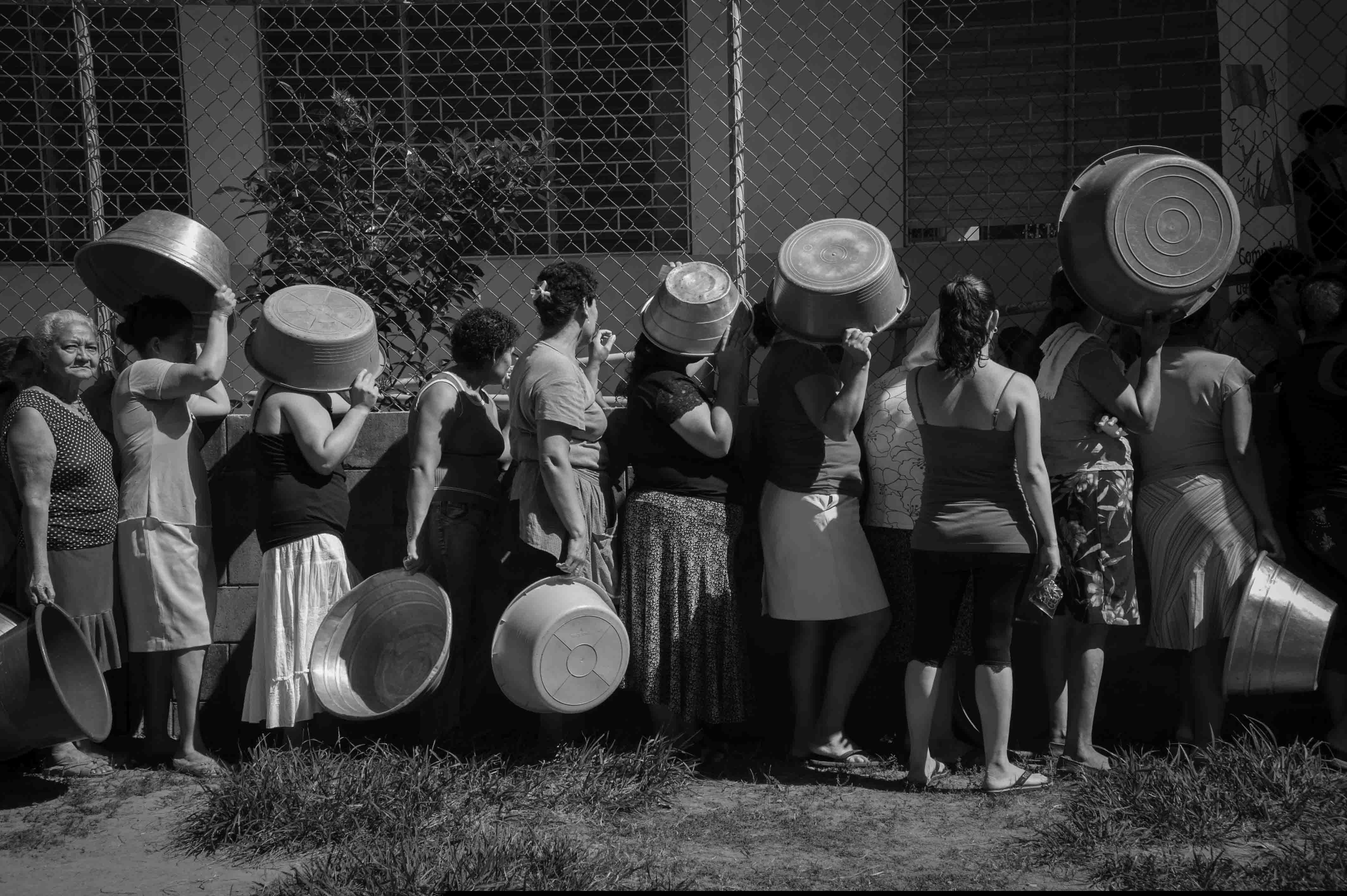
| |
(11.) In the food line
In Herradura, El Salvador mothers of children who receive support in the framework of Sant’Egidio’s Long-Distance Adoption project wait in a baking sun for food distribution. The living conditions of the children are improving slowly but surely. |
|
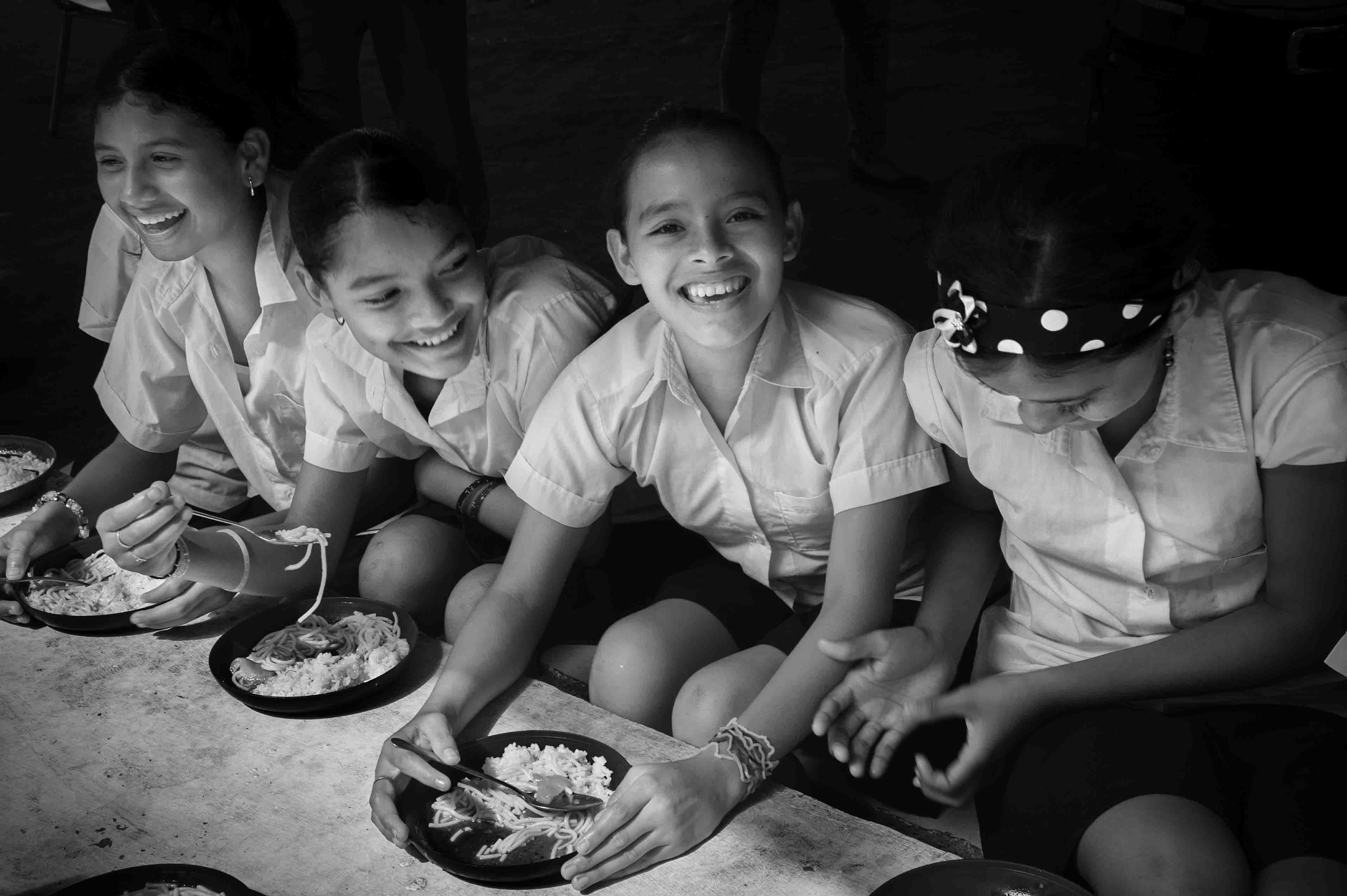
| |
(12.) Caring family
Radiant faces in the elementary school of the fishing village of Herradura in El Salvador. Sant’Egidio not only distributes a hot lunch, but above all provides a caring family that supports the children. |
|
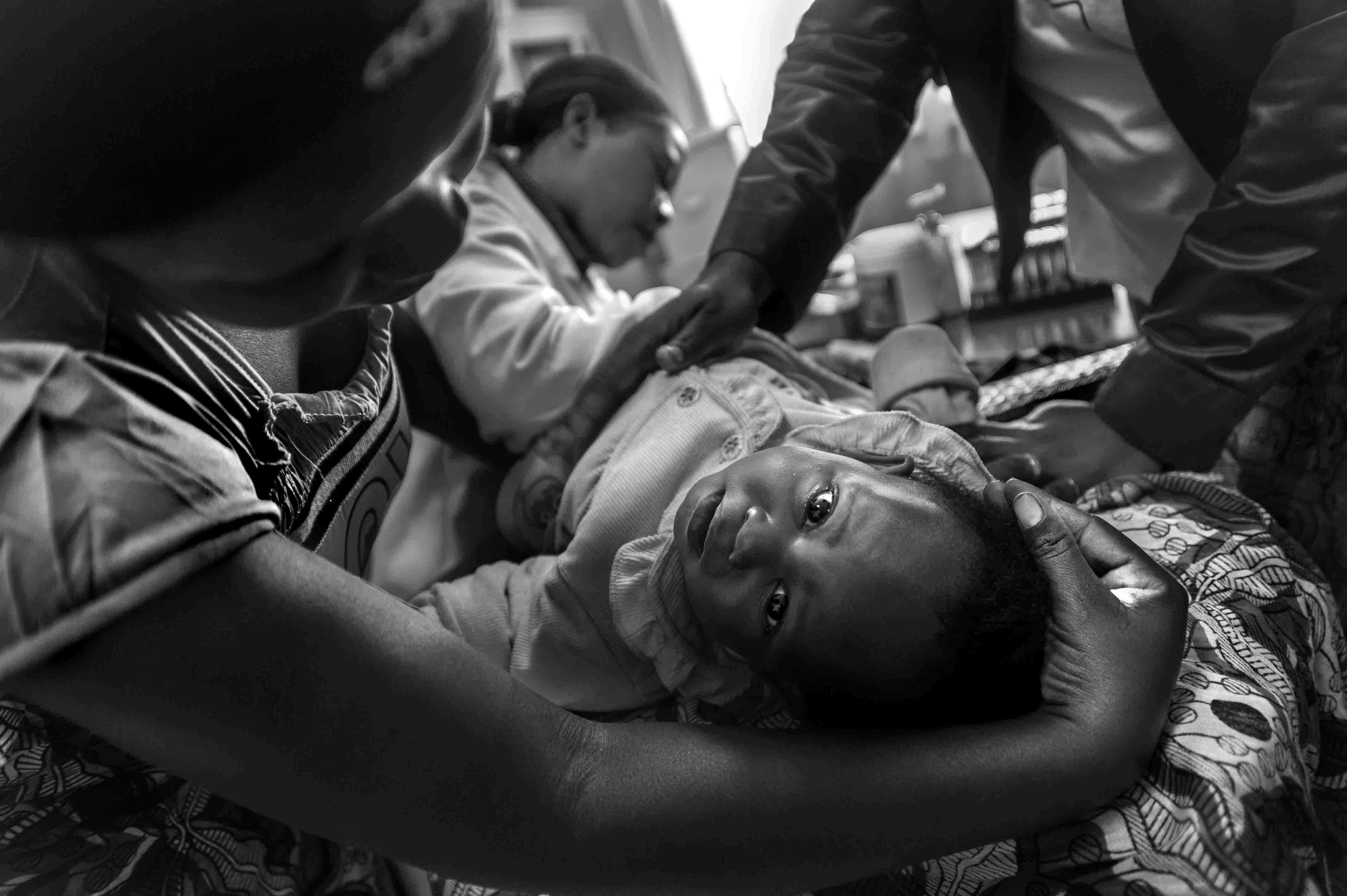
| |
(13.) HIV-infected mother, healthy baby
Enelesi, the daughter of Niercy James of Malawi, screams in pain while receiving an injection. But she radiates health, while her mother is infected with HIV. Enelesi is one of the 14,000 success stories of the groundbreaking mother-child program of Sant’Egidio’s DREAM project. |
|
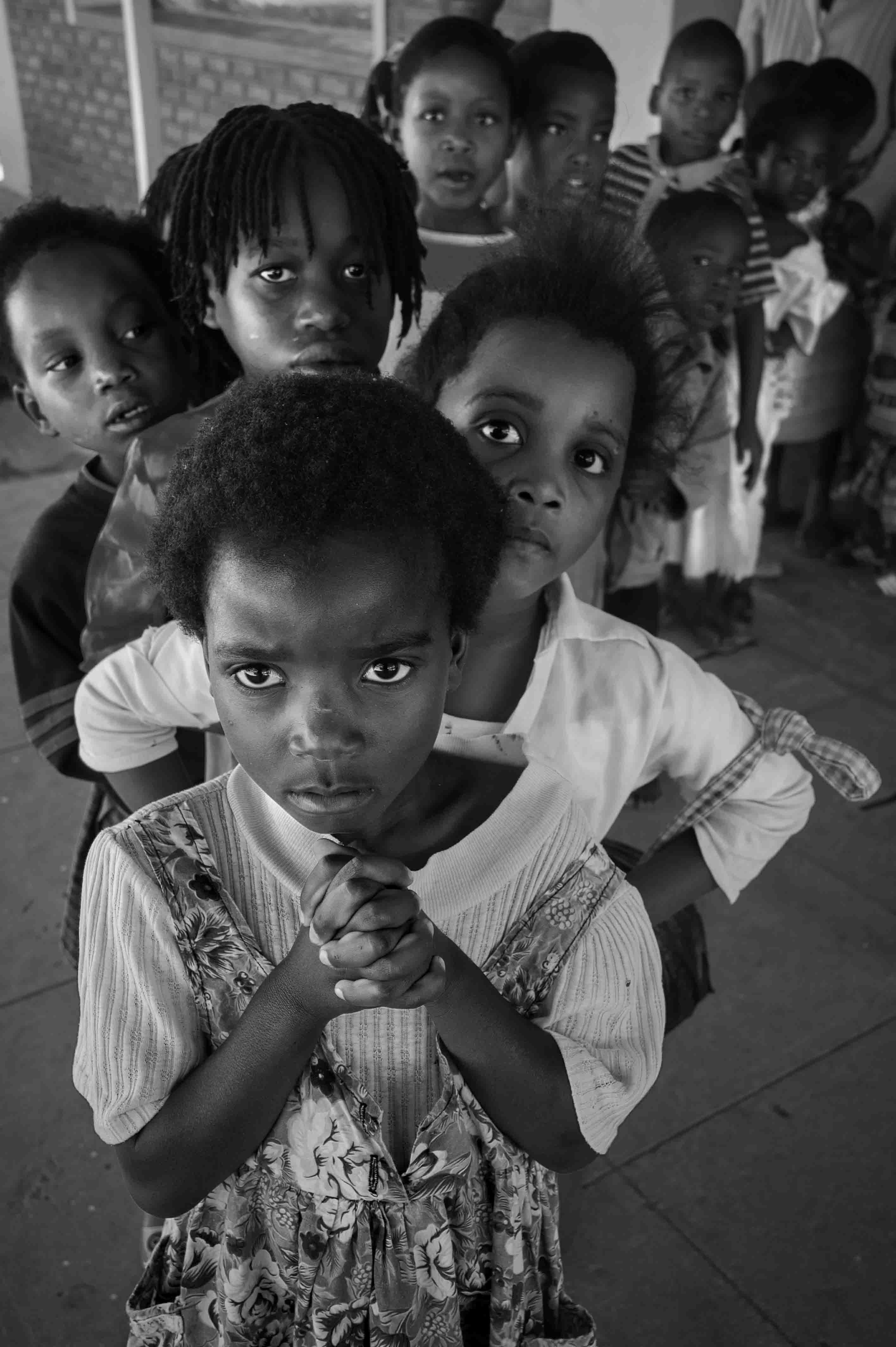
| |
(14.) Wash hands first
Daily 400 to 500 children eat at the Sant’Egidio nutrition center located in a disadvantaged area of the city Blantyre in Malawi; often it is their only meal. Most are AIDS-orphans and are infected with HIV. They stand in line to wash their hands before eating. |
|
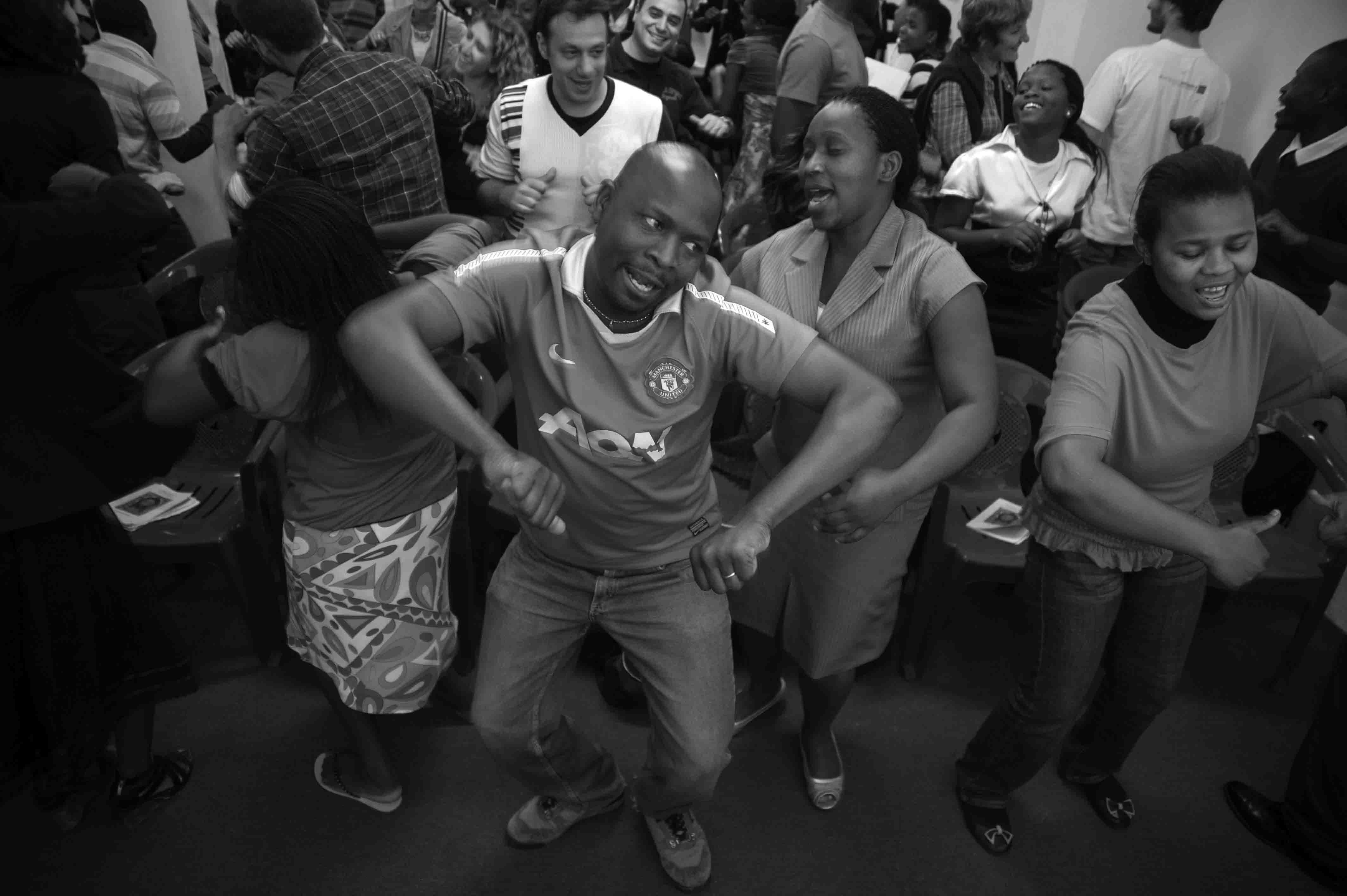
| |
(15.) Prayer becomes a feast
The weekly prayer celebration of Sant’Egidio members in the city of Blantyre in Malawi grows into a feast each time. |
|
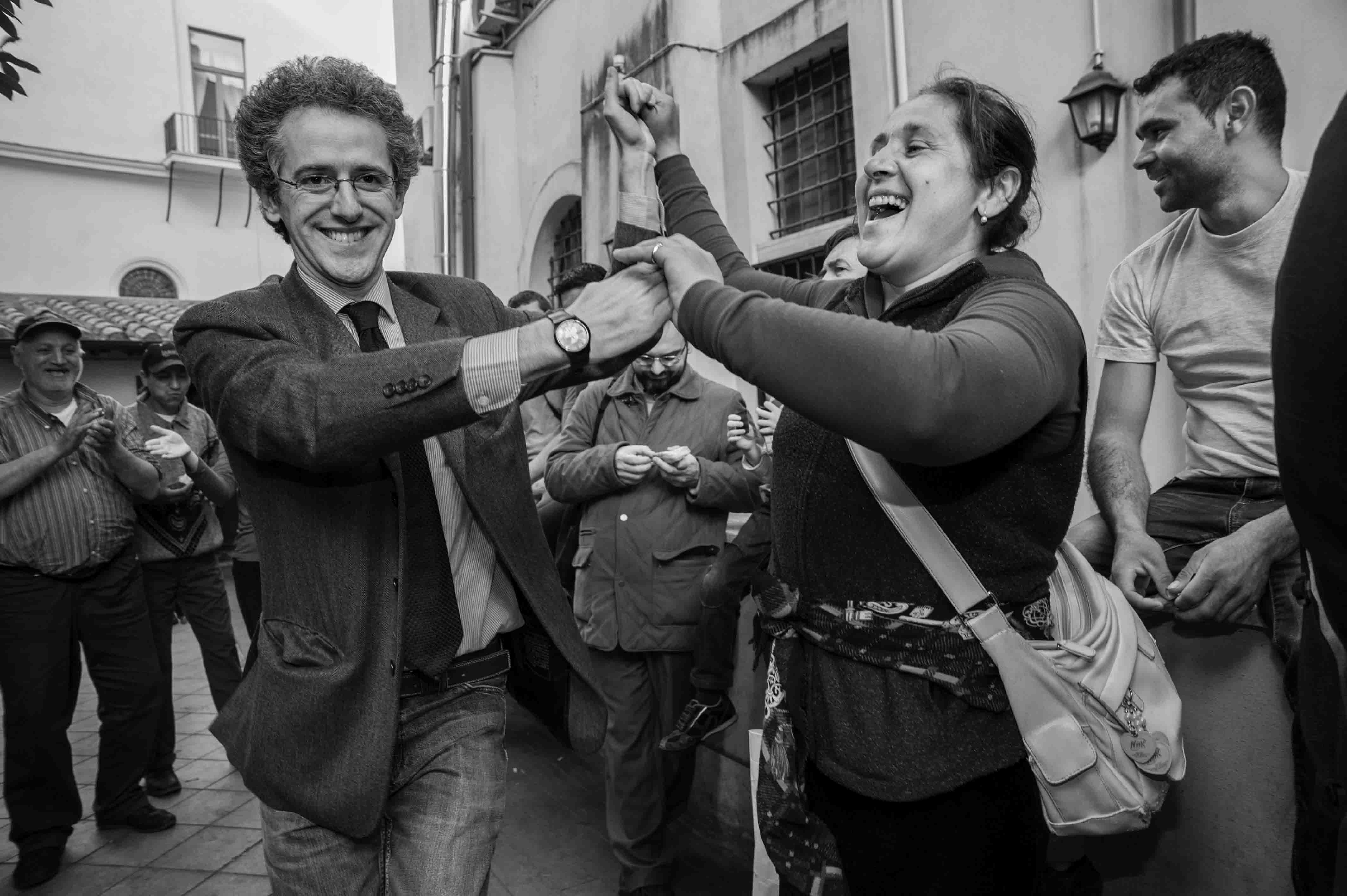
| |
(16.) Dancing with Roma Gypsies
Roma Gypsies are treated as outcasts everywhere in Europe. On April 8, the international day of the Roma, the Community of Sant’Egidio in Rome throws a party for them. Paulo Ciani, in charge of the event, dances with a Gypsy woman. |
|
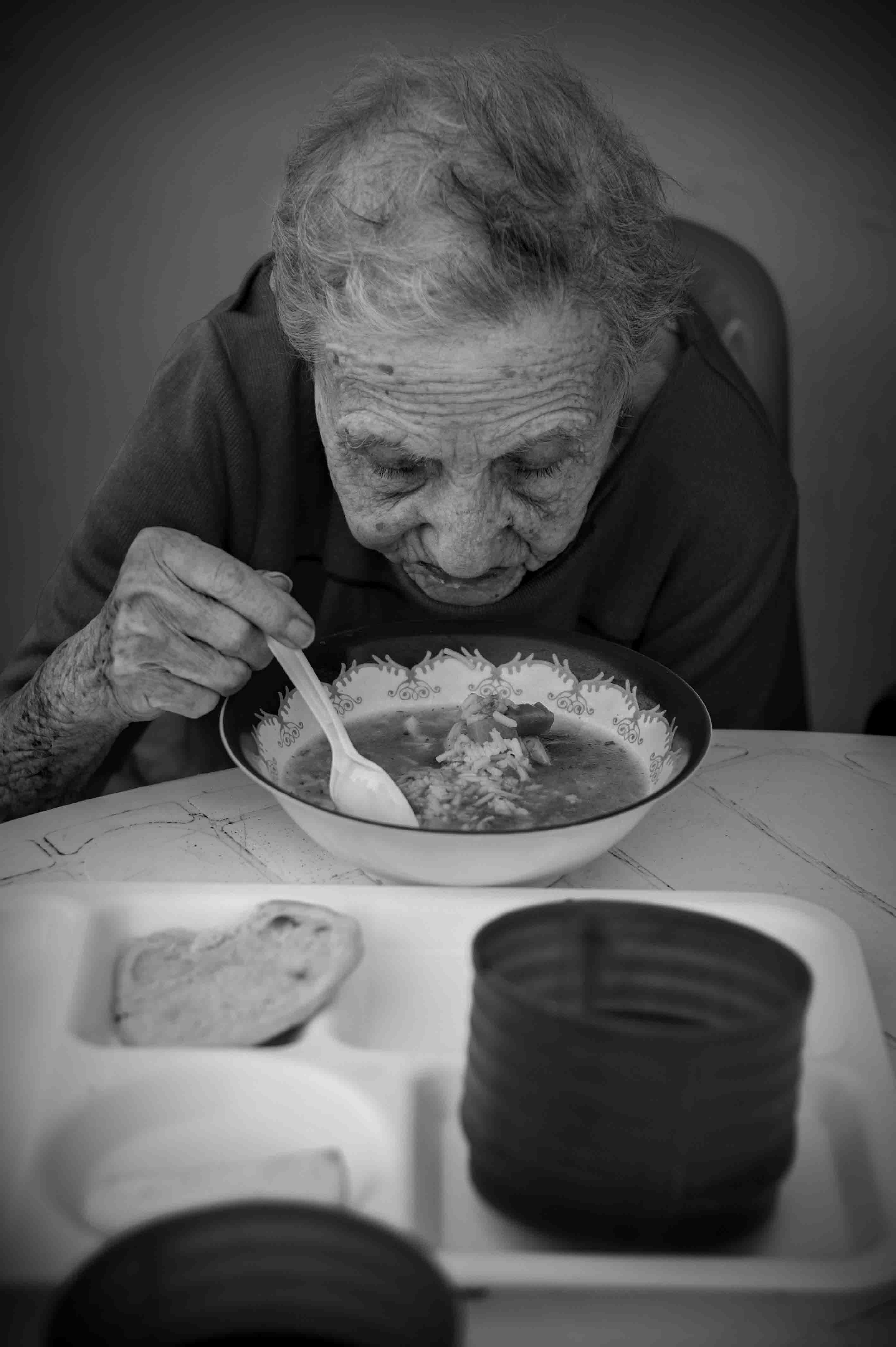
| |
(17.) Languishing in loneliness
In a nursing home in El Salvador volunteers of Sant’Egidio visit elderly persons who are languishing in loneliness. This is one of the most invisible, but worst maladies, of our time. |
|
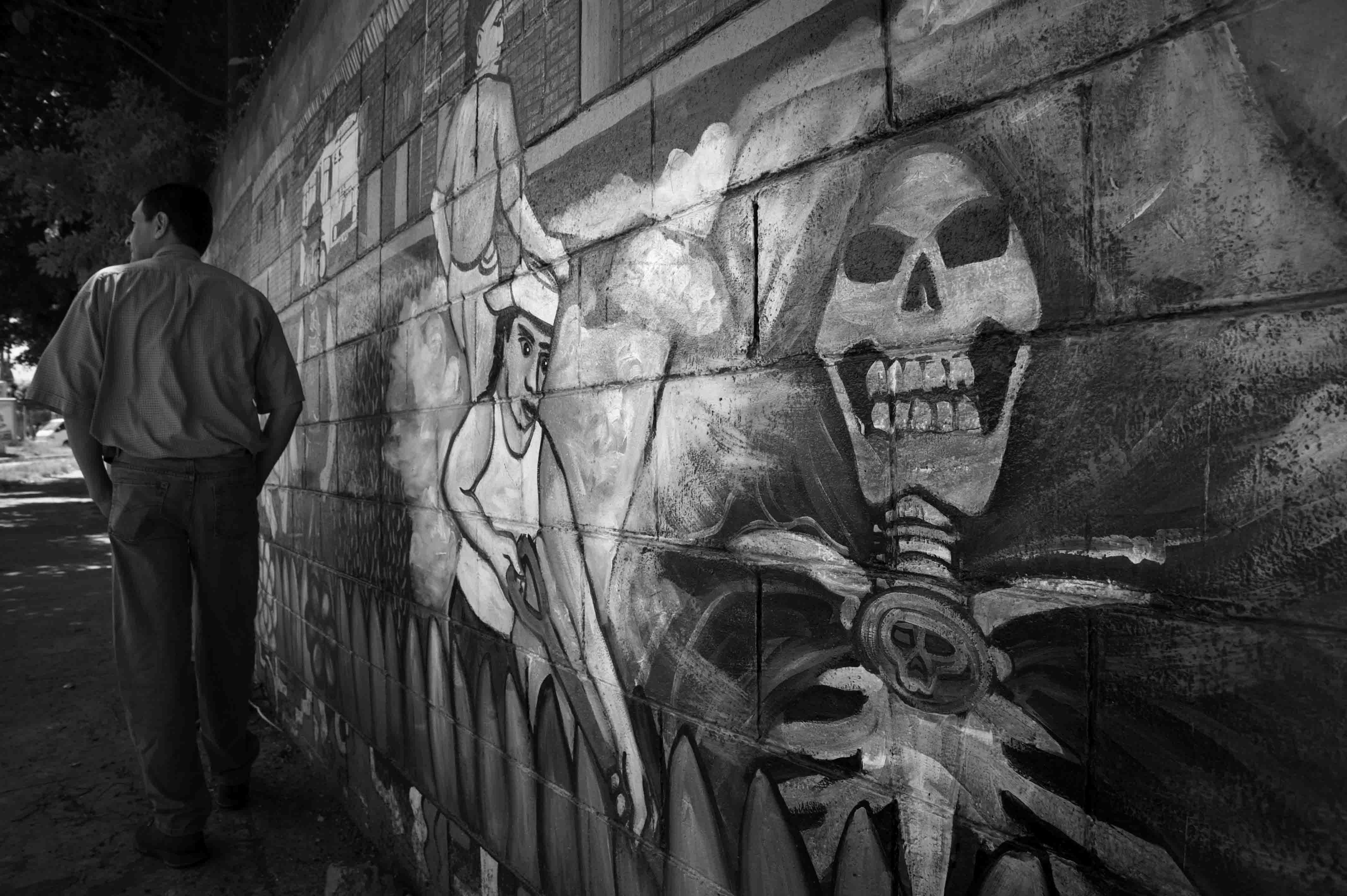
| |
(18.) Tragedy of Central America
A mural in the capital San Salvador captures the tragedy of Central America in an image. The maras, the notorious youth gangs with their merciless violence, commit ten to fifteen murders every day. As an antidote, the Schools of Peace of Sant’Egidio initiate young people into a culture of peace. |
|
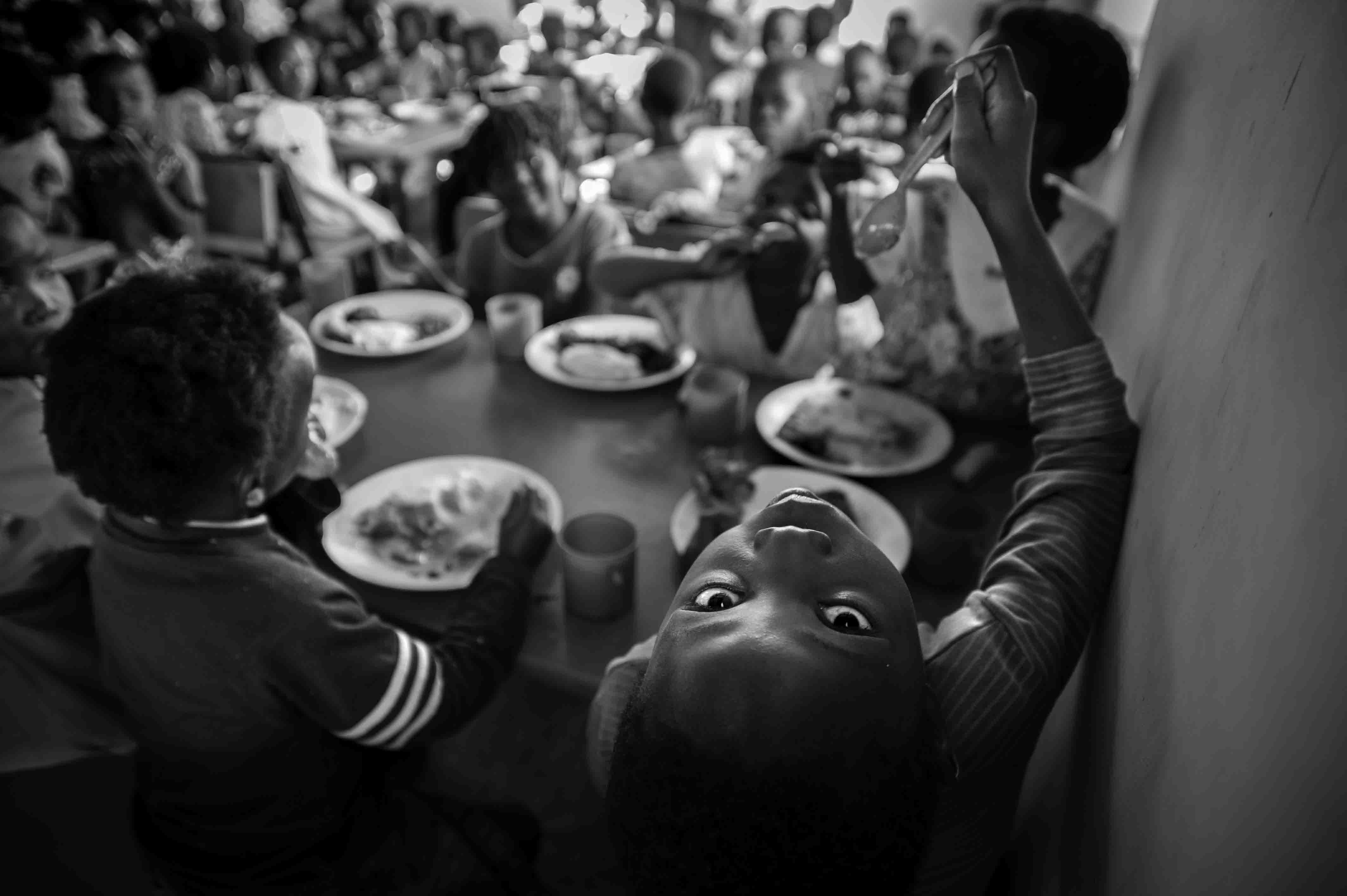
| |
(19.) HIV/AIDS and malnutrition hand in hand
The Sant’Egidio nutrition center in the city of Blantyre in Malawi offers a hot meal every day to AIDS-orphans living with HIV. In Africa, HIV/AIDS and malnutrition go hand in hand. |
|
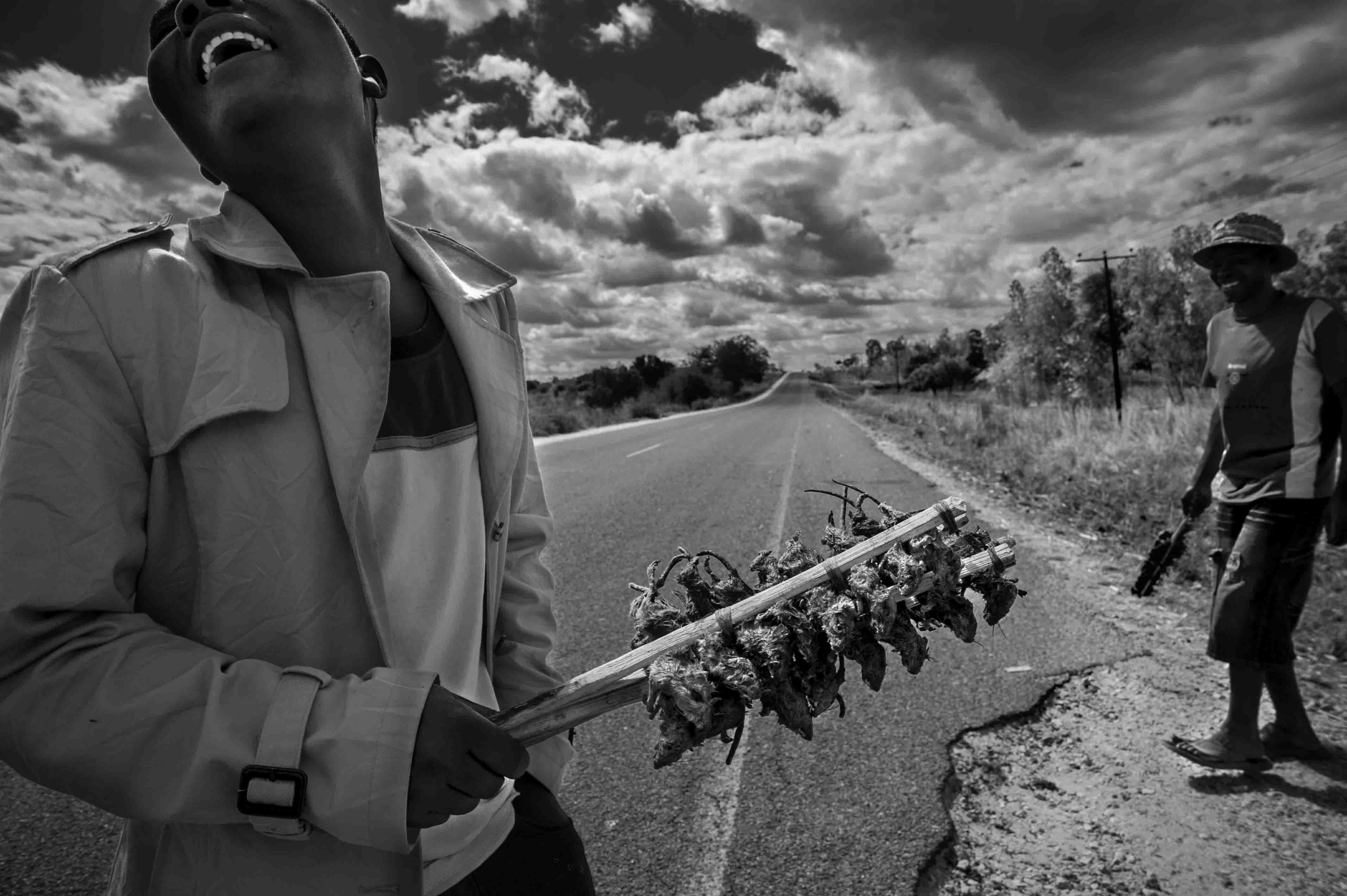
| |
(20.) Africa needs European expertise
In Malawi, the fifth poorest country in the world, roasted mice are sold as sweets along the road. Sant’Egidio cherishes the dream of Eurafrica: Africa desperately needs the expertise of Europe. |
|
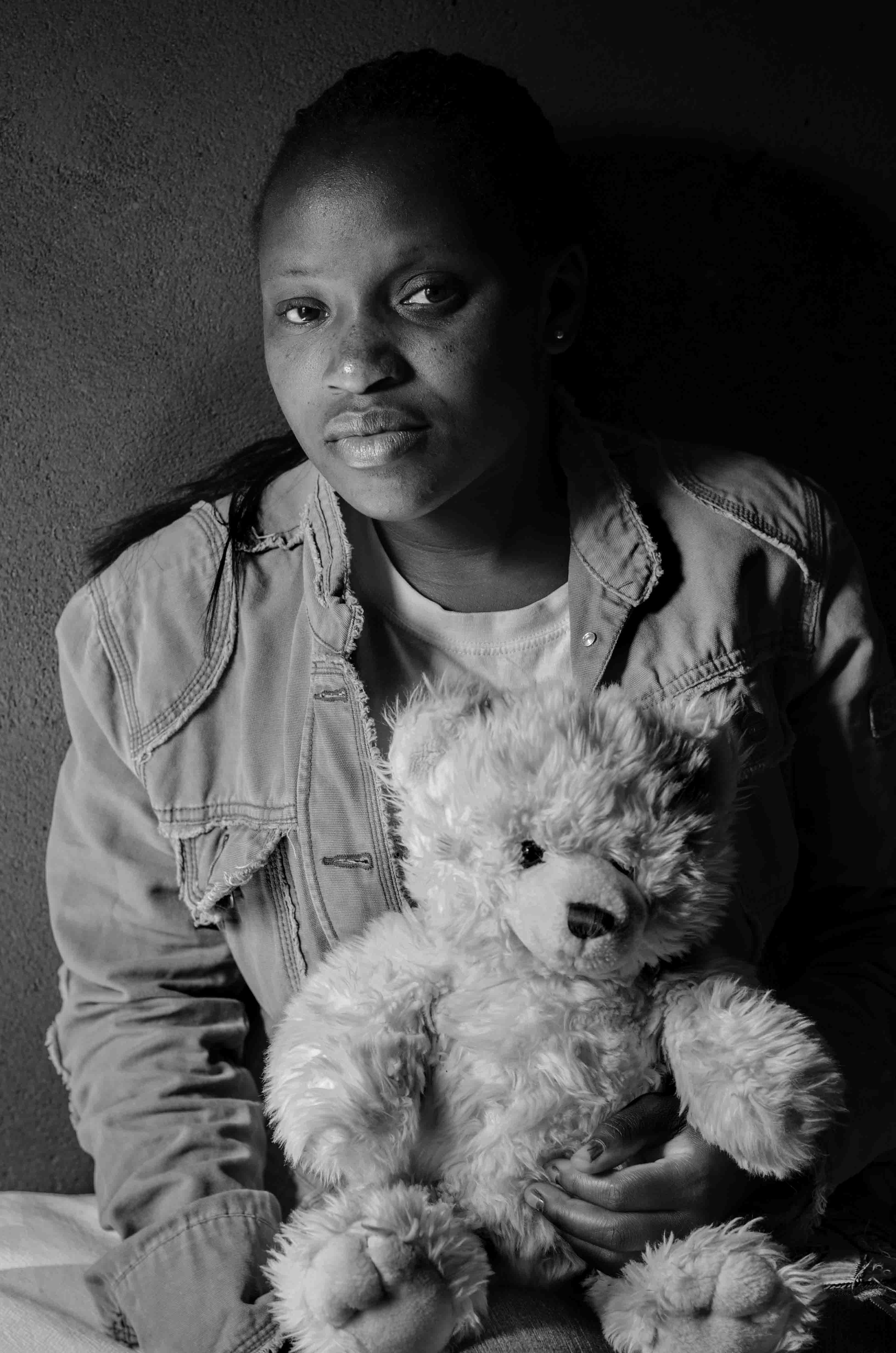
| |
(21.) Saving other young people
AIDS-orphan Grace Kaunda (19) is herself HIV-positive. She has but one goal: to become a doctor as soon as possible. “Today I realize that God has a plan for me, that it’s my mission to save the lives of other young people.” |
|

| |
(22.) Church of Christian martyrs
On April 5, 2011 the personal Bible of Shahbaz Bhatti, Pakistan’s Minorities Minister who was murdered on 2 March 2011, was given a place in the Church of San Bartholomeo all’isola in Rome. In the year 2000, Pope John Paul II consecrated that church to the Christian martyrs of the 20th and the 21st centuries. Every evening at 8 o’clock members of Sant’Egidio gather here for evening prayer. |
|
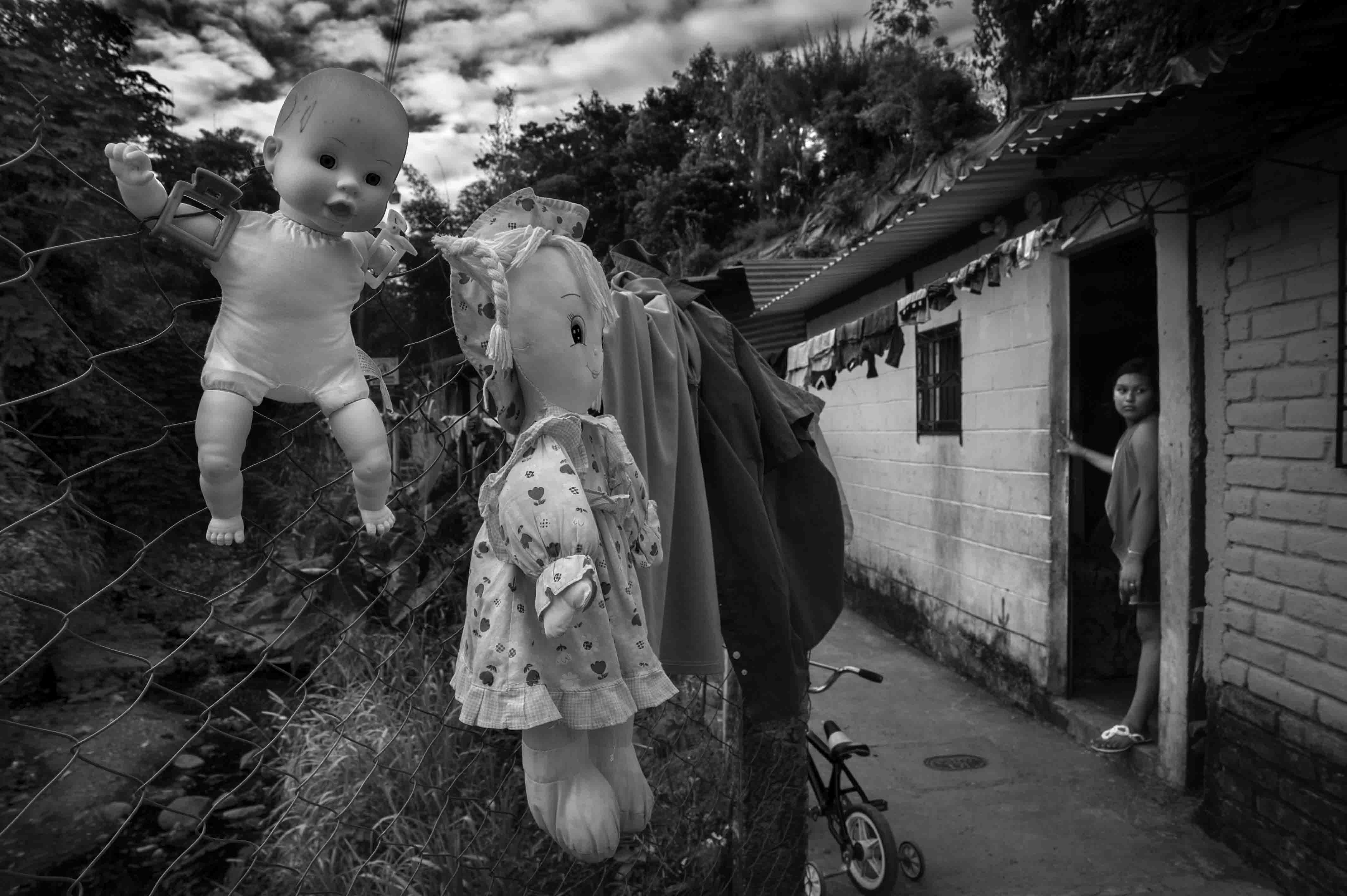
| |
(23.) Growing up in spirit of solidarity
In San Salvador two hundred families have settled in the hamlet of Bambular since 1985. The atmosphere is easy-going, and everyone knows everyone. Thanks to the School of Peace of Sant’Egidio, which has been active here for twenty years, the children grow up in a spirit of solidarity. |
|
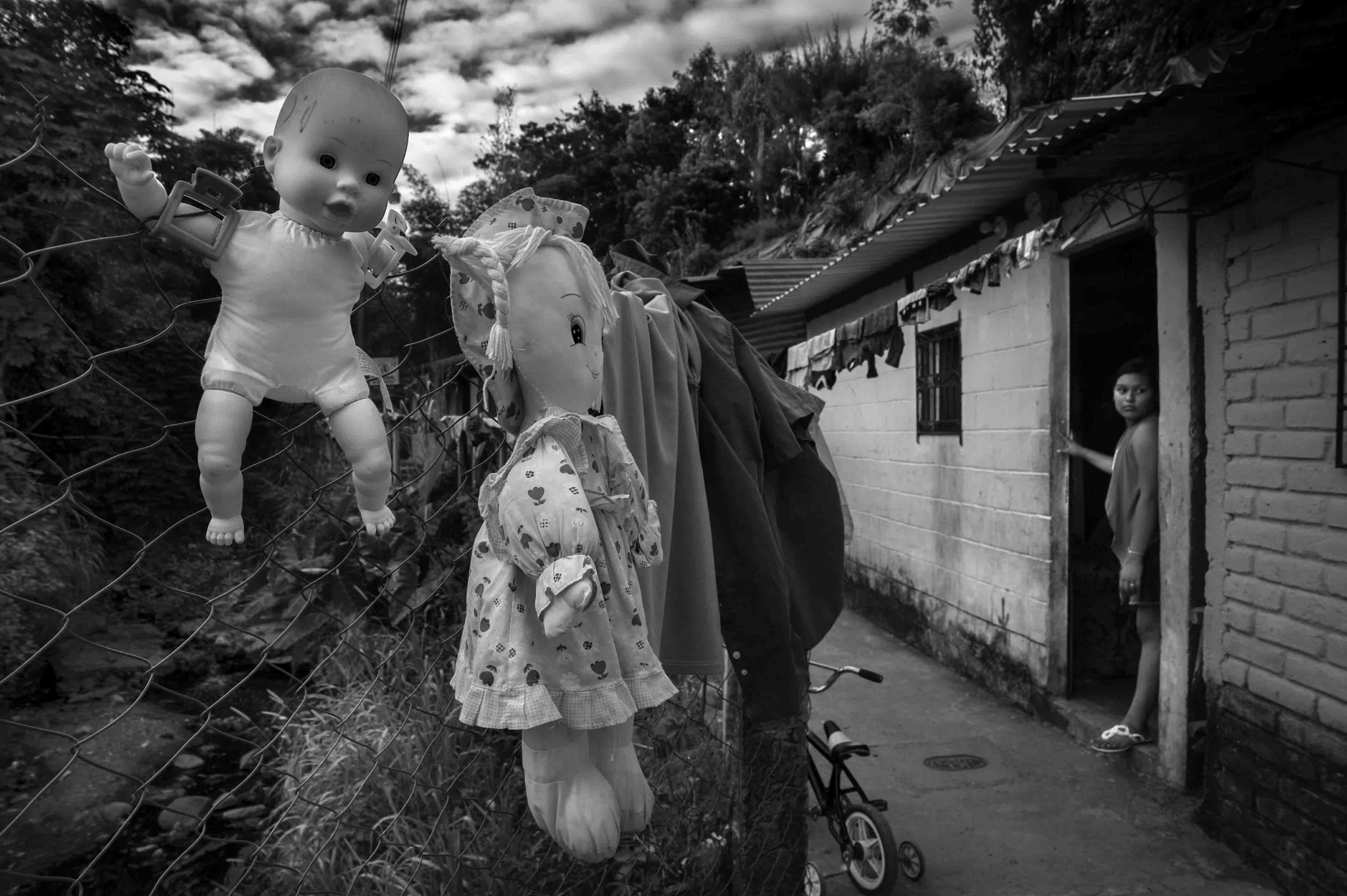
| |
(24.) Remembering the Shoah
Visit to the concentration camp of Dachau during the 2011 Prayer for Peace in the German city of Munich. Every year Sant’Egidio commemorates the Shoah: the suffering of the Jewish people during the Second World War. |
|
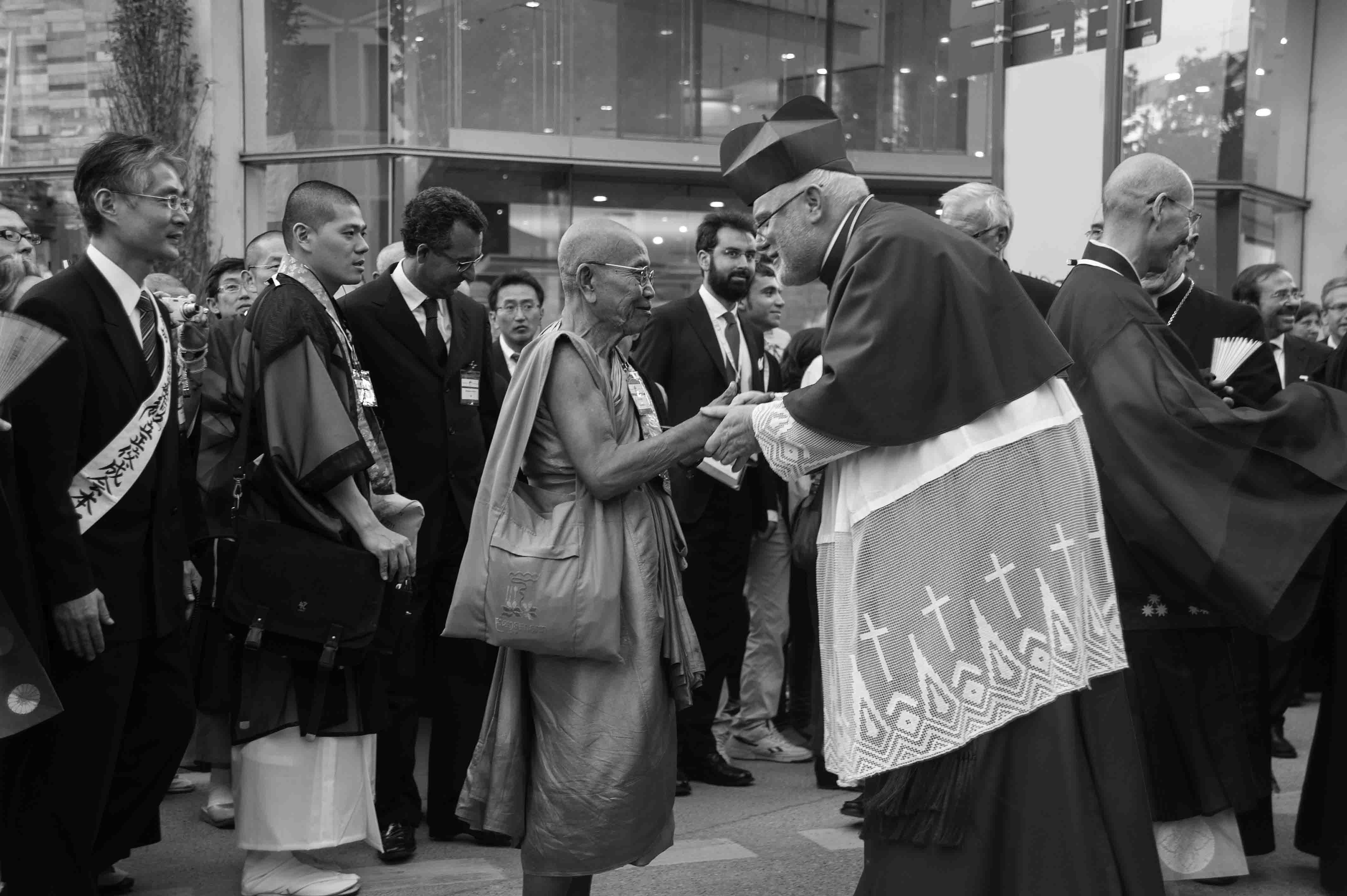
| |
(25.) Direct conversations are a revelation
Meeting of religious leaders during the peace procession of the International Prayer for Peace of Sant’Egidio in 2011 in Munich. The direct conversations are a revelation for many. |
|
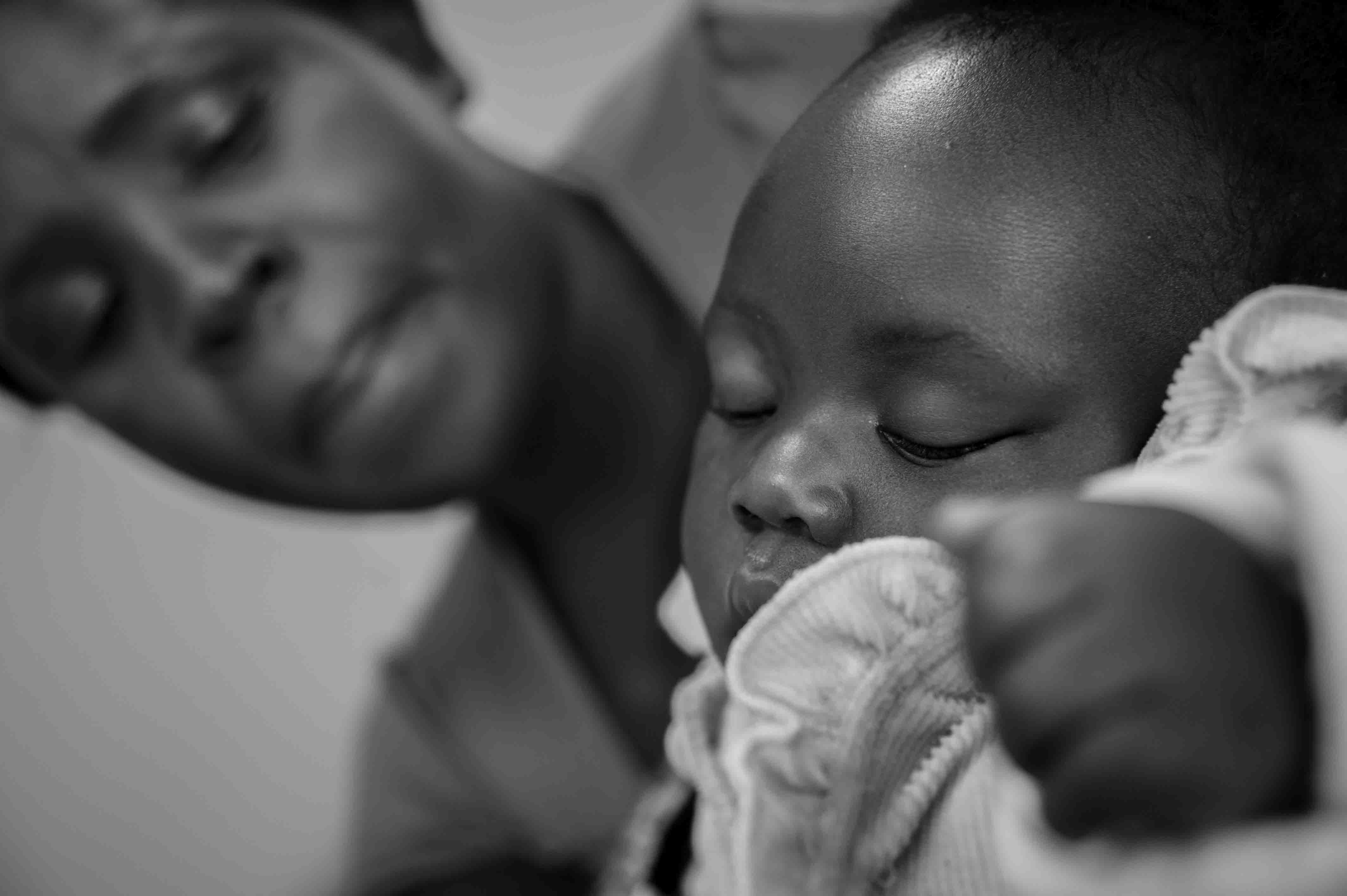
| |
(26.) Death’s shadow
Mother and daughter on a visit to the doctor of Sant’Egidio’s DREAM project in Malawi. Here twelve percent of the population is infected with HIV/AIDS. |
|
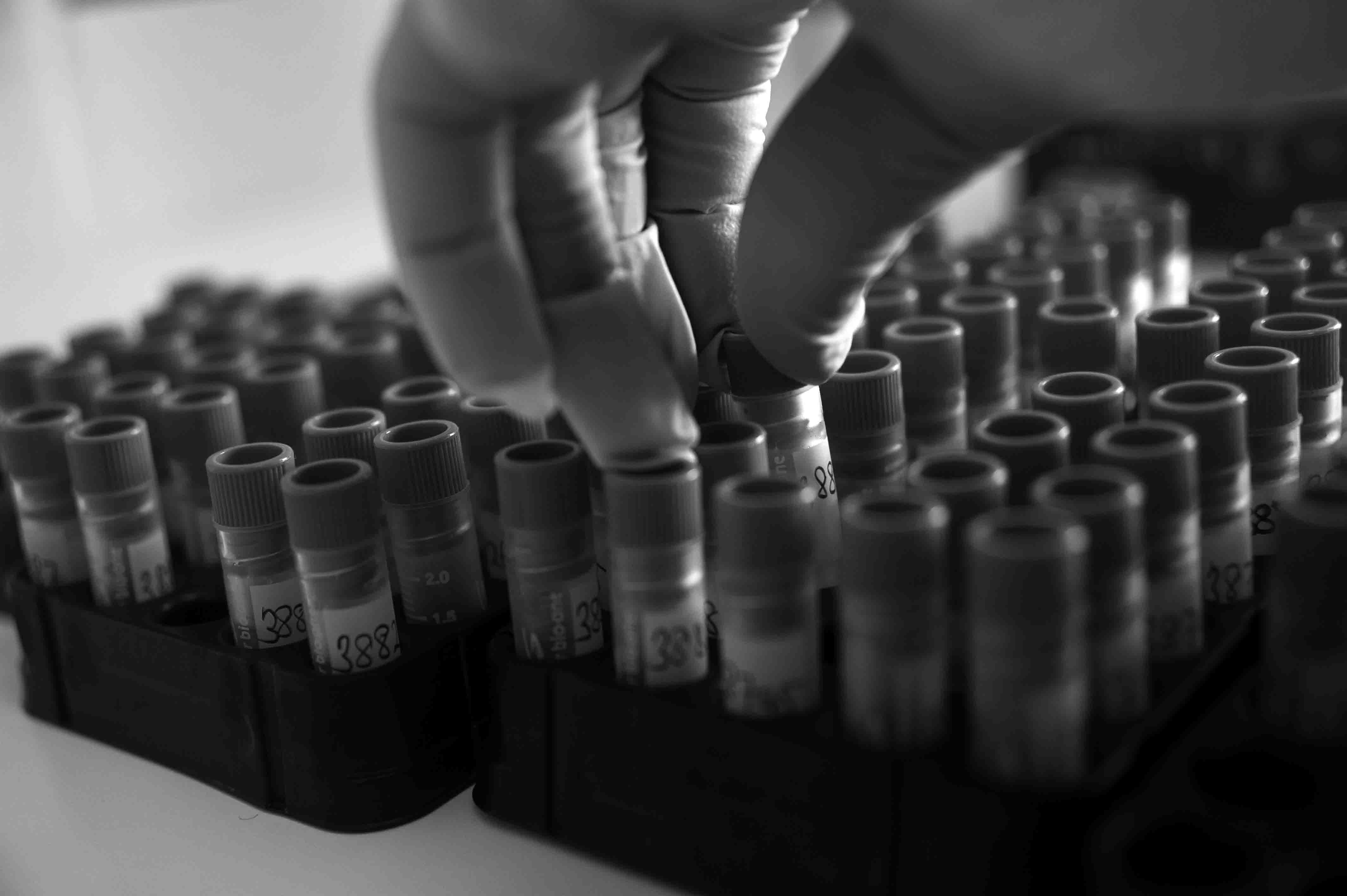
| |
(27.) Africans treated like Europeans
A hypermodern laboratory in the city of Blantyre in Malawi. The DREAM project of Sant’Egidio made the ‘impossible’ come true: African AIDS patients receive the same treatment as Europeans.
|
|

| |
(28.) Church in Rome gives name to community
Sant’Egidio was founded in Rome in 1968, in the aftermath of and inspired by the Second Vatican Council. The community took up residence in an empty cloister in the neighborhood of Trastevere. The cloister’s church, dedicated to Saint Giles (Egidio) and located on the similarly named Piazza di S. Egidio, gave the community its name. |
|
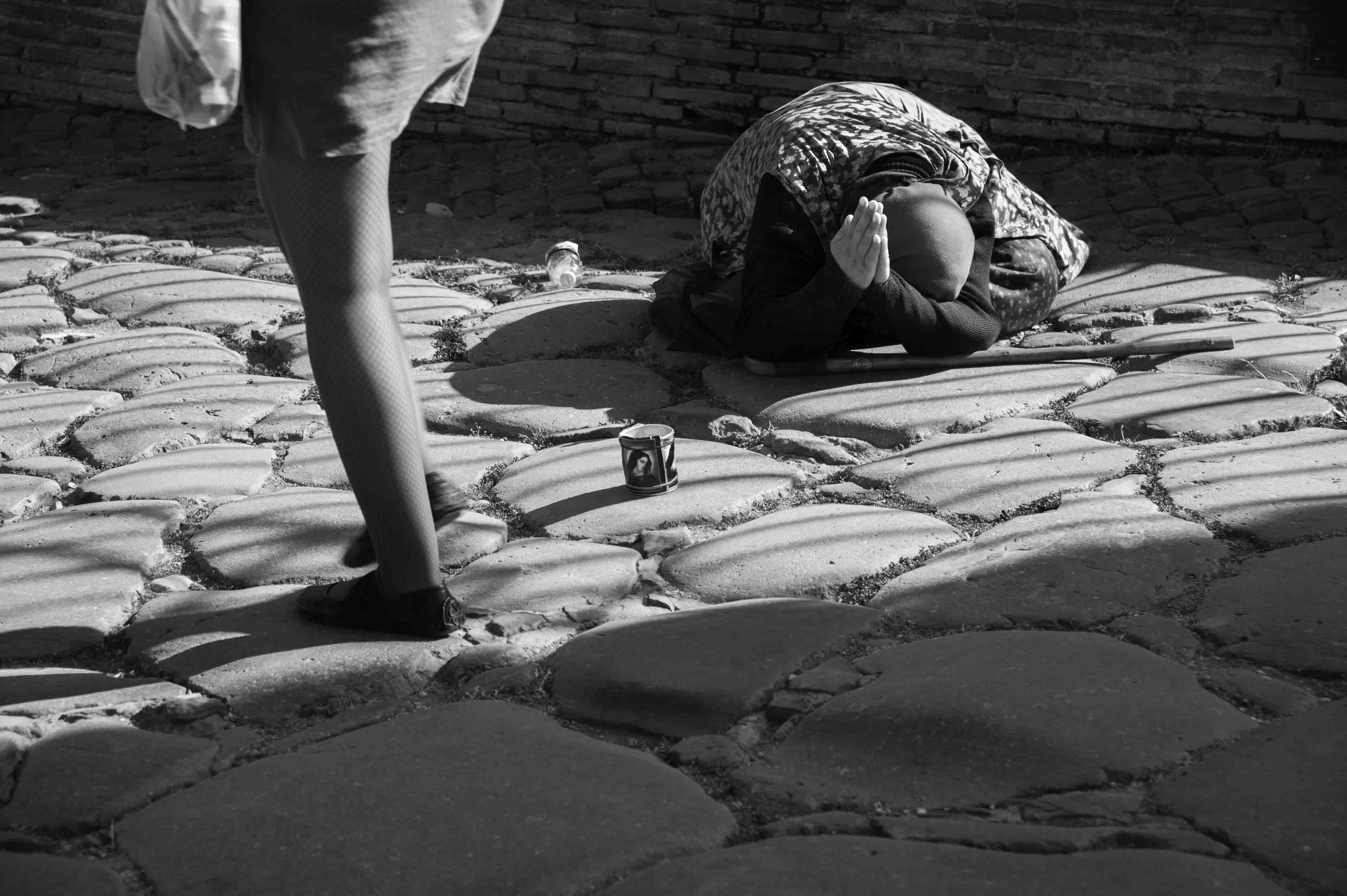
| |
(29.) Beggars considered crooks
A beggar on the streets of Rome. The atmosphere is especially grim in the cities. Begging is often banned, and beggars are considered crooks. |
|
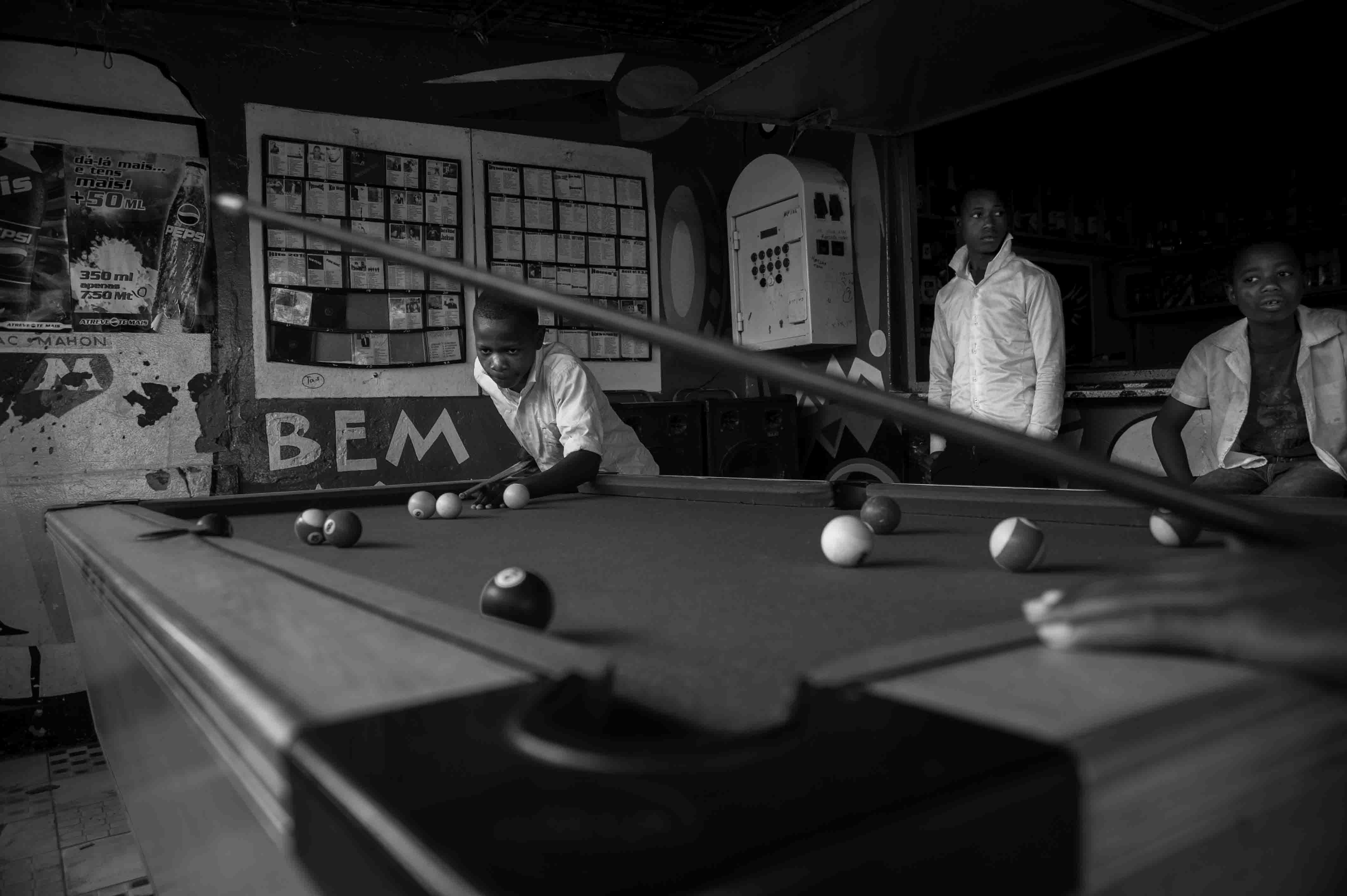
| |
(30.) Peace agreement holds
All seems peaceful in Maputo, capital of Mozambique, during a game of billiards. Sant’Egidio mediated the 1992 peace agreement that holds to this day. But democracy is threatened in Mozambique. The opposition scarcely has an opportunity to be active, and former Communists of Frelimo still hold the reins of power. |
|
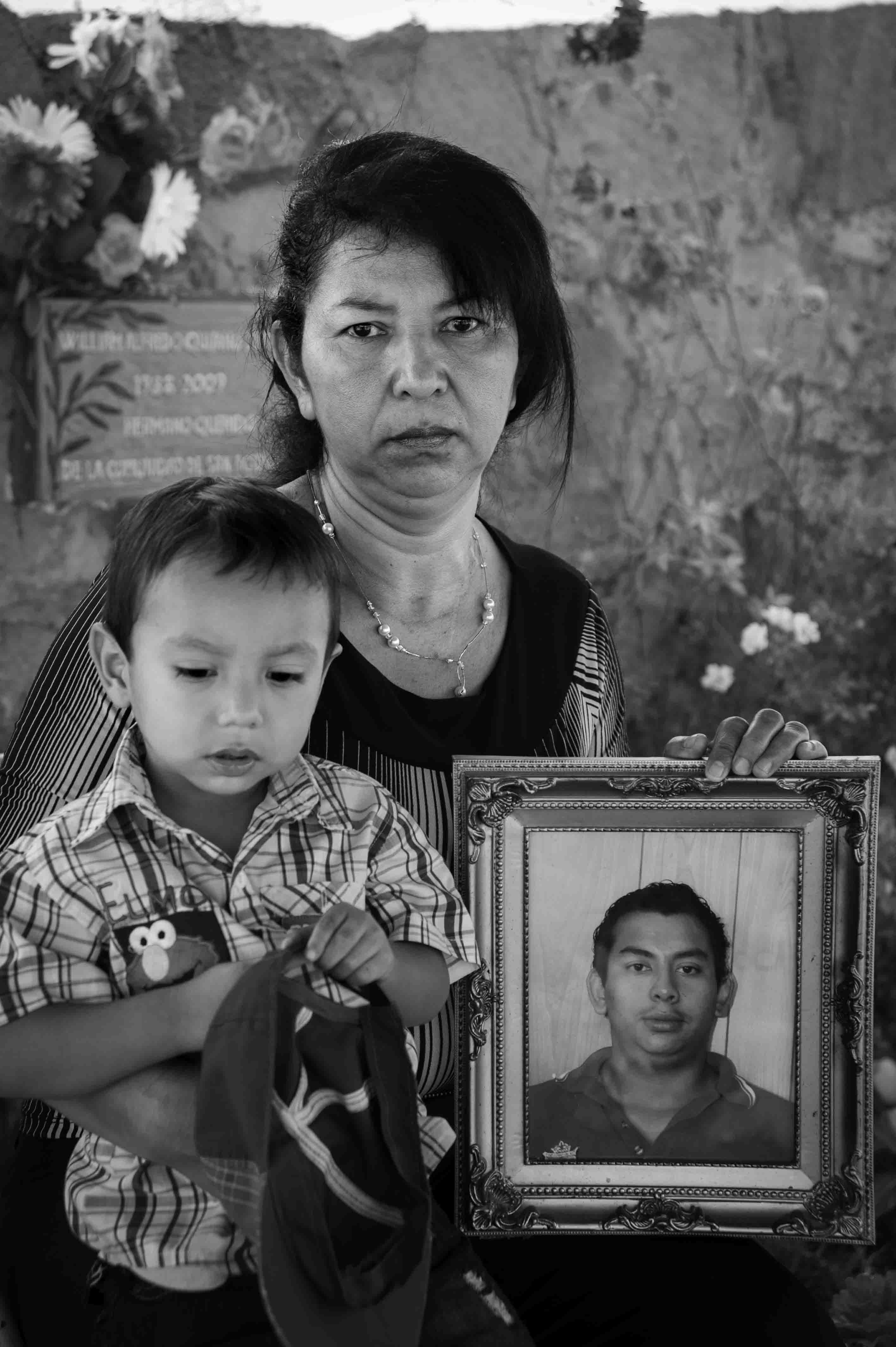
| |
(31.) Do not repay evil with evil
The 21-year-old William Quichano, in charge of the School of Peace in the Apopa neighborhood of San Salvador, was murdered on September 28, 2009 by the ‘mara Salvatrucha’ youth gang. “I’m not happy that William’s murderers were murdered in turn,” says his mother, Janeth Marlene Zetino. “God does not want evil repaid with evil.” On her lap, we see a photo of her murdered son and her grandson Jefferson. |
|
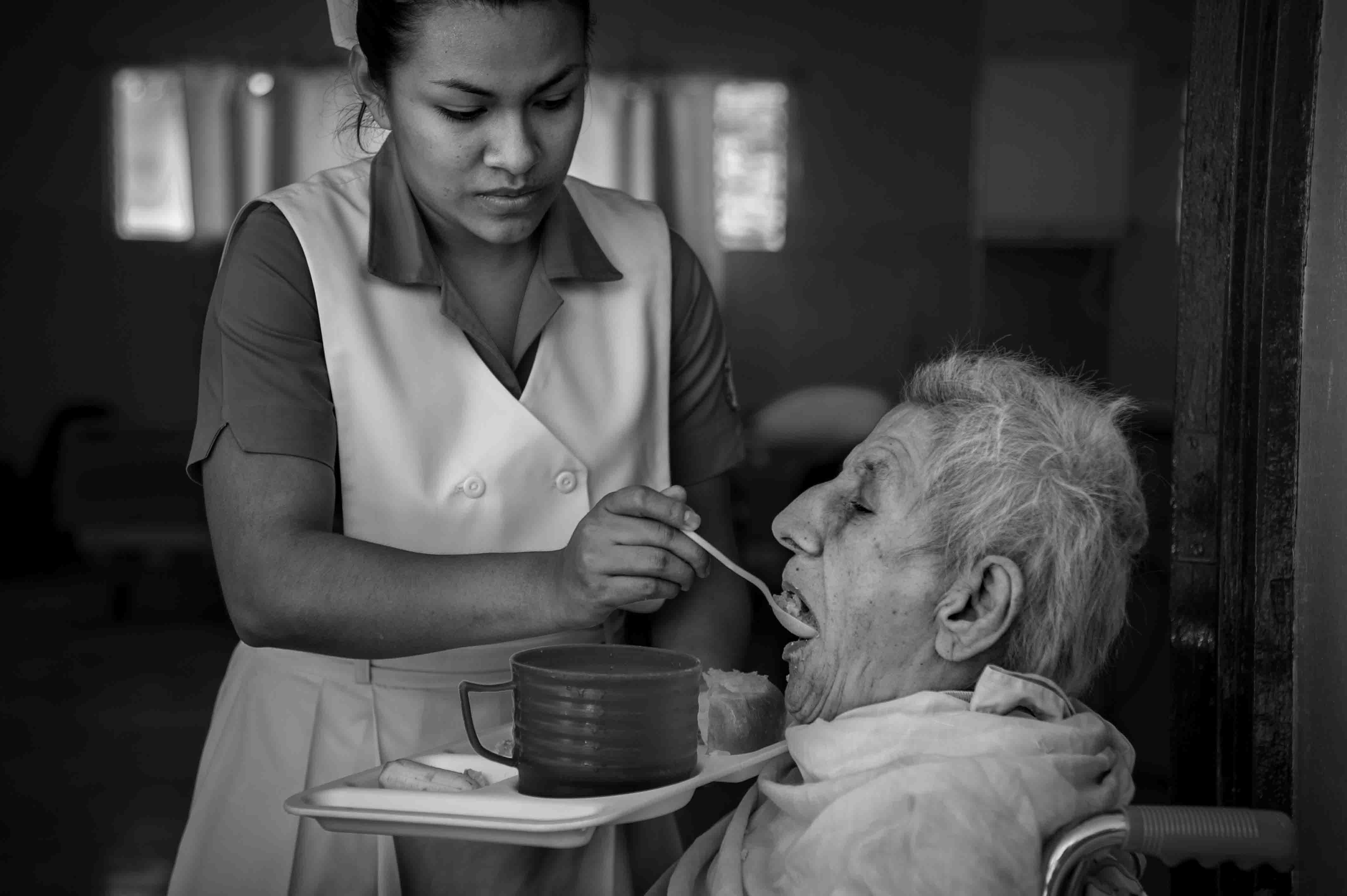
| |
(32.) Life of elderly can be deeply meaningful
In El Salvador, Sant’Egidio seeks out the elderly in nursing homes. The message of the community is that every life possesses great value. Moreover, the elderly can still live deeply meaningful lives: in terms of friendship, religiosity, and prayer. |
|
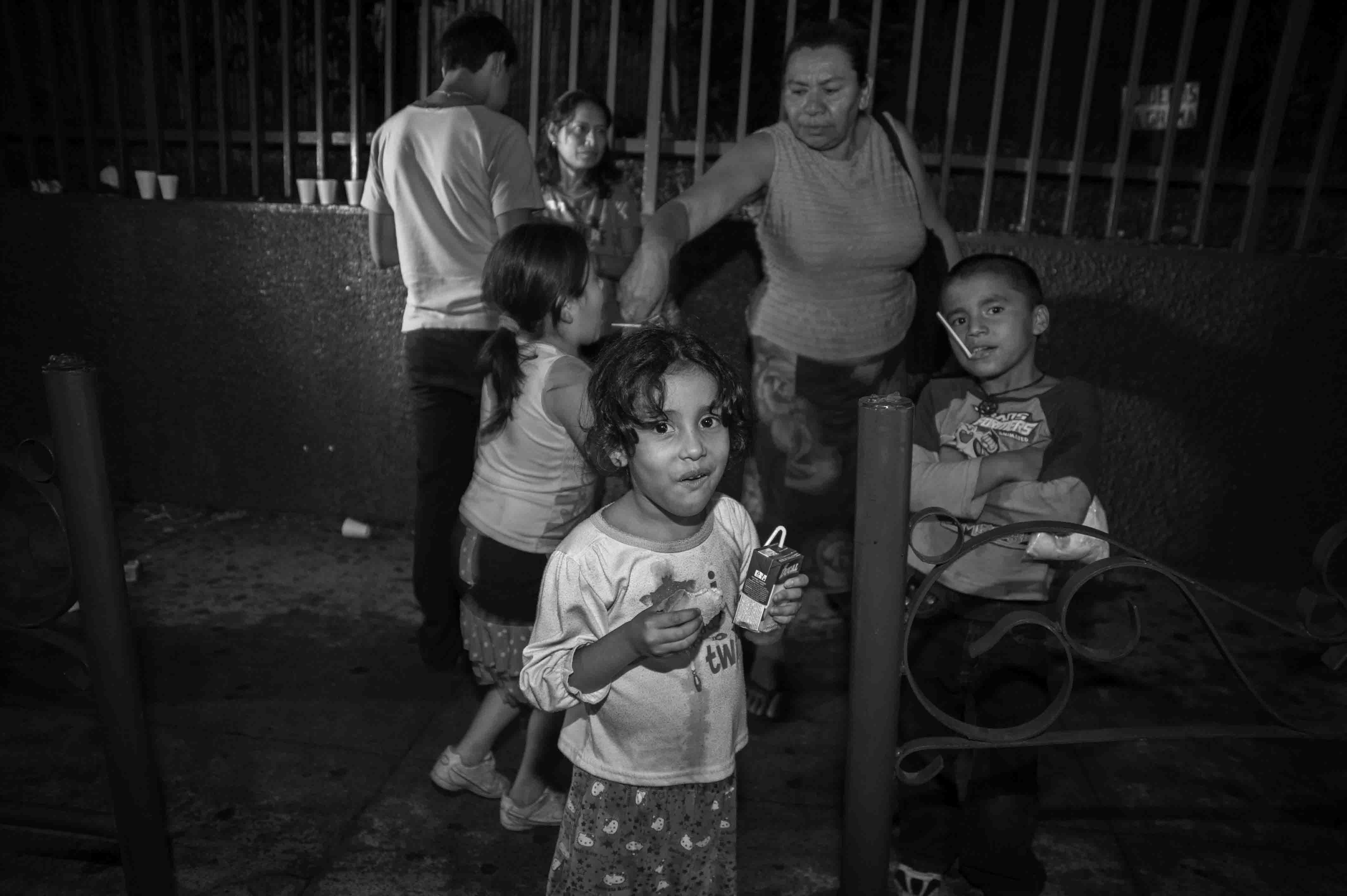
| |
(33.) Ensuring continuity
Sant’Egidio volunteers prepare meals for the homeless every week in San Salvador. The support of prayer, mutual respect, trust, collegiality, and friendship ensure the continuity of the community’s activities. |
|
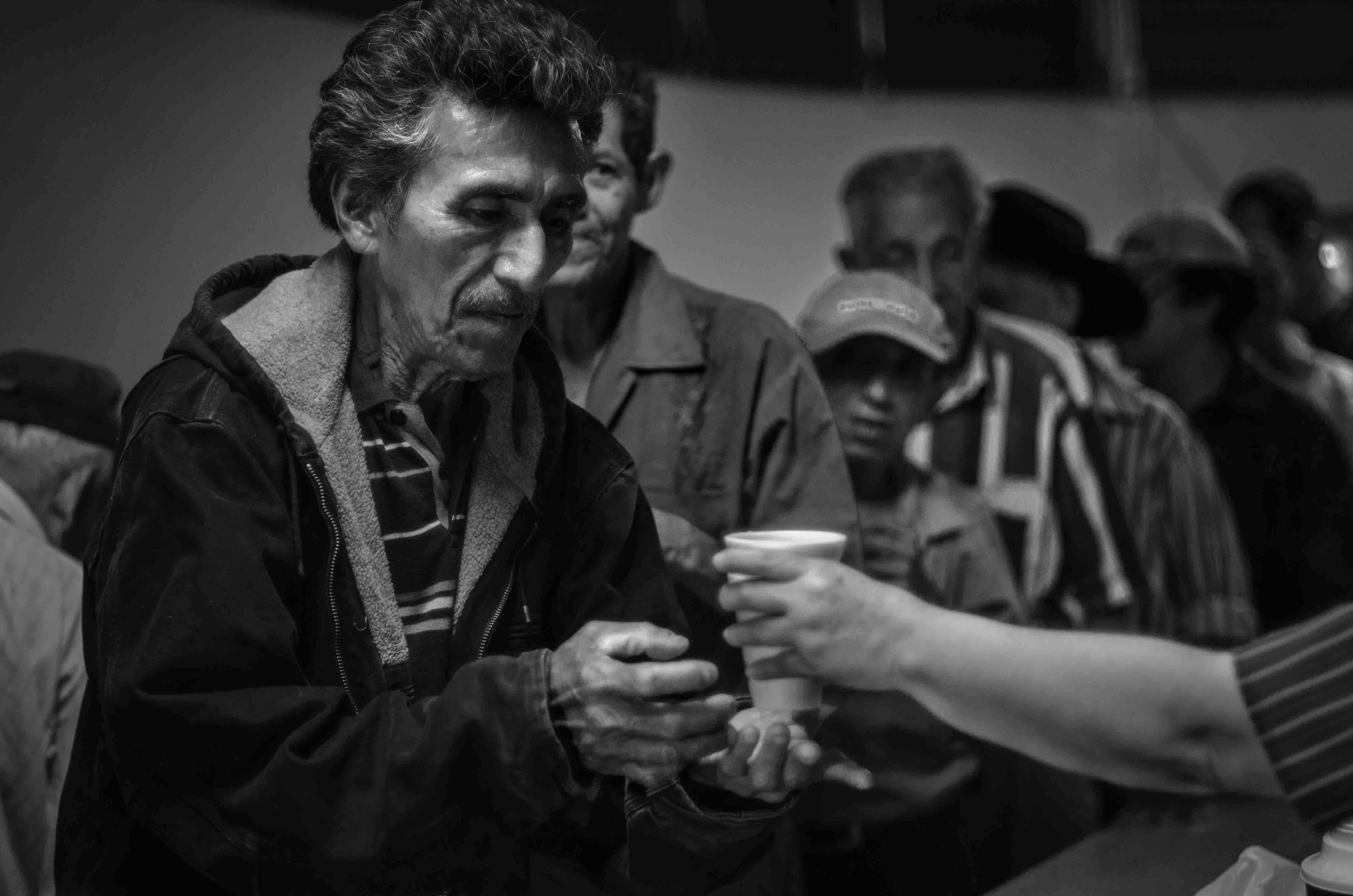
| |
(34.) Friend of the poor
Distribution of food and drinks to homeless people on the streets of San Salvador. Central to the activities of Sant’Egidio is the commitment, derived from the power of the Gospel, to become a friend of the poor. |


































